

Lawyer The Arkansas

H A R L E Y
A C C O U N T
I N G
S
O
L U T I O N S
Let us take care of the bookkeeping, so you can focus on your business.
As a busy attorney, you have enough on your plate without having to worry about the nitty-gritty details of bookkeeping. That's where our experienced team of bookkeeping experts can step in and take the burden off of your shoulders
Our comprehensive bookkeeping services are designed specifically to meet the unique needs of law firms like yours
W H Y U S ?
With 18 years of corporate finance, accounting, and audit experience at Fortune 500 companies, I have managed billions of dollars in budgets for high-stakes clients such as the Department of Defense, the U S Navy, and the Department of State. I’ve also served on several boards as treasurer, overseeing financial strategy and budget management Now, as a business owner managing the books for my four companies, I understand firsthand the needs of small businesses. I specialize in bookkeeping for small businesses, particularly attorneys, and aim to provide financial clarity and peace of mind so you can focus on growing your business.



PUBLISHER
Arkansas Bar Association
Phone: (501) 375-4606 Fax: (501) 421-0732 www.arkbar.com
EDITOR
Anna K. Hubbard
EXECUTIVE DIRECTOR
Karen K. Hutchins
PROOFREADER
Cathy Underwood
EDITORIAL BOARD
Caroline R. Boch
William Taylor Farr
Anton L. Janik, Jr.
Jim L. Julian
Tory Hodges Lewis
Drake Mann
Tyler D. Mlakar, Chair
Michael A. Thompson
Courtney K. Nosari Wall
Brett D. Watson
Amie K. Wilcox
David H. Williams
Nicole M. Winters
OFFICERS
President
Kristin L. Pawlik
President-Elect
Jamie Huffman Jones
Immediate Past President
Judge Margaret Dobson
President-Elect Designee
Representative Carol Dalby
Secretary Glen Hoggard
Treasurer
Brant Perkins
Parliamentarian
Brent J. Eubanks
YLS Chair
Frank LaPorte-Jenner
BAR ASSOCIATION STAFF
Executive Director
Karen K. Hutchins
Director of Operations
Kristen Frye
Finance Administrator/CPA
Staci Clark
Director of Government Affairs
Leah Donovan
Publications Director
Anna K. Hubbard
Executive Administrative Assistant
Michele Glasgow
Office & Data Administrator
Cynthia Barnes
Professional Development Coordinator
Lisa McCormick
Information Specialist
Rachel Henderson
Lawyer The Arkansas
features



Honoring Arkansas Bar Association Members Who Served in the U.S. Military
Specialist 5 (E-5) Fred Ursery 6th Battalion/77th Artillery in Cu Chi and Can Tho, Vietnam March 1, 1968-April 1, 1969 By Fred Ursery
UALR William H. Bowen School of Law Veterans Legal Services Clinic By Professor Rebecca Feldmann
Legislative Hearings: Playing by the Right Rules By Frank Arey and Emily White
Juvenile Circuit Court 101 By Brenda Stallings
From a Judge's Perspective: Things a Lawyer Might Think About When Practicing in Juvenile Court By Judge Thomas
to
The Arkansas Lawyer (USPS 546-040) is published quarterly by the Arkansas Bar Association. Periodicals postage paid at Little Rock, Arkansas. POSTMASTER: send address changes to The Arkansas Lawyer, 2224 Cottondale Lane, Little Rock, Arkansas 72202. Subscription price to nonmembers of the Arkansas Bar Association $35.00 per year. Any opinion expressed herein is that of the author, and not necessarily that of the Arkansas Bar Association or The Arkansas Lawyer. Contributions to The Arkansas Lawyer are welcome and should be sent to Anna Hubbard, Editor, ahubbard@arkbar. com. All inquiries regarding advertising should be sent to Editor, The Arkansas Lawyer, at the above address. Copyright 2024, Arkansas Bar Association. All rights reserved.
Lawyer The Arkansas


Advertise in the next issue of The Arkansas Lawyer magazine
President: Kristin L. Pawlik; President-Elect: Jamie Huffman Jones; Immediate Past President: Judge Margaret Dobson President-Elect Designee: Carol Dalby; Secretary: Glen Hoggard; Treasurer: Brant Perkins Parliamentarian: Brent J. Eubanks; YLS Chair: Frank LaPorte-Jenner
Trustees:
District A1: Elizabeth Esparza, Geoff Hamby, William M. Prettyman, Lindsey C. Vechik
District A2-A3: Matthew Benson, Evelyn E. Brooks, Jason M. Hatfield, Christopher M. Hussein, Michelle Rene' Jaskolski, Sarah C. Jewell, George Rozzell, Russell B. Winburn
District A4: Kelsey K. Bardwell, Craig L. Cook, Brinkley B. Cook-Campbell, Dusti Standridge
District B: Randall L. Bynum, Mark Kelly Cameron, Thomas M. Carpenter, Tim J. Cullen, Bob Edwards, John A. Ellis, Bobby Forrest, Michael K. Goswami, Steven P. Harrelson, Michael M. Harrison, Jim Jackson, Anton L. Janik, Jr., Victoria Leigh, Skye Martin, Kathleen M. McDonald, J. Cliff McKinney II, Jeremy M. McNabb, Molly M. McNulty, Meredith S. Moore, John Ogles, Casey Rockwell, Lauren Spencer, Aaron L. Squyres, Caitlin Campbell Stepina, Jessica Virden Mallett, Danyelle J. Walker, Patrick D. Wilson, George R. Wise
District C5: William A. Arnold, Joe A. Denton, John T. Henderson, Brett D. Watson
District C6: Bryce Cook, Paul N. Ford, Jeffrey W. Puryear, Paul D. Waddell
District C7: Kandice A. Bell, Robert G. Bridewell, Sterling T. Chaney, Taylor A. King
Delegate District C8: Carol C. Dalby, Amy Freedman, Connie L. Grace, John S. Stobaugh
Ex-officio Members: Judge David McCormick, Judge Chaney W. Taylor, Vicki S. Vasser, Dean Cynthia Nance, Dean Colin Crawford, Denise Reid Hoggard, Eddie H. Walker, Jr., Christopher M. Hussein, Karen K. Hutchins
Strength & Experience

Class of 1999
Congratulations to Members Celebrating Their 25th Year of Practice
Justin T. Allen
Lisa L. Baker Gibbs
Madeline L. Bennington
Tameron C. Bishop
Dean Terrence Cain
Andrew L. Caldwell
Michael Carr
Jon B. Comstock
Gregory K. Crain
Shawn Bradley Daniels
William Lee Dawkins
Judge Margaret Dobson
Ruth Allison Dover
Bryan W. Duke
Missy McJunkins Duke
Angela Echols
Bob Edwards
John Andrew Ellis
Pamela Epperson
J. Carter Fairley
John A. Flynn
Jesse J. Gibson
David P. Glover
Thomas Daniel Goodwin
Julie D. Greathouse
Althea Hadden
J. Christopher Harris
Charlene Davidson Henry
James E. Hensley, Jr.
Matthew R. House
Brian Hyneman
Scott A. Irby
Martin A. Kasten
Ginger Kimes
M. Wade Kimmel
Chrissie Lamkin
M. Melissa Lee
Lana Gilmer Leger
Patrick W. McAlpine
Dustin B. McDaniel
Joseph P. McKay
Erin S. McKool
Melissa McManus
Robin Miller
Joseph G. Nichols
C. Ryan Norton
Shannon E. Padilla
Cameron Bunting Parker
Christopher B. Parkerson
Samuel J. Pasthing
Kristin L. Pawlik
Thomas Earl Pryor
Chris R. Reed
Gregory L. Smith
Robert Todd Smith
Stuart Larson Spencer
Jason Aaron Stuart
Jeremy Swearingen
Howard Todd Whatley
Patrick D. Wilson
Jennifer Wilson-Harvey
Robert Patrick Young
ArkBar 2024-2025 Committee Chairs
ArkBar President Kristin Pawlik appointed the following members to serve as committee chairs.
501(c)(3) Exploratory Committee: David Biscoe Bingham
Annual Meeting: Christopher M. Hussein and William J. Ogles
Arkansas Bar PAC: Lindsey Vechik
Artificial Intelligence Task Force: Meredith Lowry
Audit: Dan Young
Bar Center Task Force: Bob Estes
Editorial Advisory Board - The Arkansas Lawyer: Tyler D. Mlakar
Finance: Brant Perkins
Hall of Fame Selection Committee: J. Cliff McKinney II
Judiciary: Judge Margaret Dobson
Jurisprudence and Law Reform: Paul W. Keith
Law School: Harry A. Light
Legislation: Glen Hoggard
Mock Trial: Margaret K. Davis
Past Presidents: Judge Margaret Dobson
Personnel (ArkBar): Denise R. Hoggard
Political Speech and Activities Task Force: Aaron L. Squyres
ArkBar 2024-2025 Section Chairs
Thank you to the following members for leading the sections this year. Watch for additional chair elections.
Agricultural Law: Jordan P. Wimpy
Appellate Law: Tasha C. Taylor
Business Law: William P. Feland, II
Construction Law: William P. Feland, II
Corporate & In-House Counsel: William P. Feland, II
Debtor/Creditor: Mary-Tipton Thalheimer
Elder Law: Ashley Stepps
Environmental Law: Mitchell Alexander Dowden
Family Law: Amanda Nicole Williamson
Government Practice: Vincent C. Henderson, II
Natural Resources Law: Patrick Hickey
Probate & Trust Law: David Biscoe Bingham
Real Estate Law: J. Cliff McKinney, II
Section of Taxation: Hannah Van Horn
Solo, Small Firm & Practice Management: John S. Pickell
Young Lawyers’ Section: Frank LaPorte-Jenner

Oyez! Oyez!

APPOINTMENTS AND ELECTIONS
The Gaines House honored the Honorable Annabelle Imber Tuck and the Honorable Joyce Williams Warren with the Sandra Wilson Cherry Award. The Arkansas Judges and Lawyers Assistance Program honored Dean Cynthia Nance with the Justice Robert L. Brown Community Service Award. UA Little Rock Bowen Alumni Association honored Judges Rita and Wayne Gruber with the Distinguished Alumni Awards; Colette Honorable with the Outstanding Alumni in Public Service Award; and Cara Butler with the Emerging Leader Award. Jim Wyly of Wyly Rommel, PLLC was selected for the Commitment to Justice award by the University of Arkansas Law school, Fayetteville and the law school Alumni Society. J. Cliff McKinney II of Quattlebaum, Grooms & Tull PLLC was inducted as a Fellow of the American College of Mortgage Attorneys.
WORD ABOUT TOWN
Taylor King Law announced that Thomas Odom and Kelsi Scarlett joined the firm. Wright Lindsey Jennings announced that Lauren Ator, Allie Barnes, Elizabeth Kimbrell, and Timothy Frith joined the firm. Rose Law Firm announced that Mitchell A. Dowden joined the firm. Quattlebaum, Grooms & Tull PLLC announced that Michaela D. Caudle, J. Houston Downes, David A. Gardner, Tyler C. Gillespie, and Falyn E. Traina have joined the firm.
Send your oyez to ahubbard@arkbar.com
2024 Mock Trial Competition Call for Volunteers

Single-Weekend, Round-Robin Competition Feb. 28-March 1


“High School mock trial is a unique opportunity that engages and introduces students in a fun way to the legal system and the judicial process—one that often inspires futures,” said Maggie King Davis, chair of the Mock Trial Committee. “Students continue to participate, in part, because of the positive interactions with members of our legal community. Every year, our students look forward to taking on the role of attorneys and witnesses and preparing for the case competition.” To this end, we seek judges and lawyers to serve as scoring and presiding judges during the competition. No mock trial experience is necessary, as we provide a brief orientation before the round.
We are pleased to continue hosting a single-weekend, round-robin competition, which will take place on Friday, February 28 and Saturday, March 1, 2025, in Little Rock. Because this is a single weekend of competition, where all teams will get to compete in four rounds of competition, we need as many volunteers as possible to hold a successful competition. To volunteer, go to www.arkbar.com/ARMockTrial or contact Davis at maggie11king@gmail.com. The Mock Trial Committee appreciates your support.
Representative Carol Dalby elected the new ArkBar President-Elect Designee

The Arkansas Bar Association (ArkBar) is pleased to announce Representative Carol Dalby as the new President-Elect Designee. Rep. Dalby, of Texarkana, was elected without opposition at the close of nominations on October 7, 2024. She will begin her one-year term as President-Elect in June 2025 and will assume the office of President at the 2026 ArkBar Annual Meeting.
A long-time active member of ArkBar, Rep. Dalby currently serves on the Board of Trustees and the Law School Committee. She has previously served on the Board of Governors and has been involved in several key committees, including Professional Ethics, Governance, Jurisprudence and Law Reform, Judicial Nominations, Juvenile Justice, Lawyers for Literacy, Legal Related Education Super Committee and Committee for a Modern Judiciary.
In addition to her work with ArkBar, Rep. Dalby is serving her fourth term in the Arkansas House of Representatives, where she represents District 100, covering Texarkana and part of Miller County. For the 94th General Assembly, she chairs the House Judiciary Committee and serves on the House City, County, and Local Affairs Committee, as well as the Legislative Joint Auditing Committee. She is also a practicing attorney in Texarkana.
Rep. Dalby earned her undergraduate degree from Ouachita Baptist University, a master's degree from East Texas State University (now Texas A&M), and her Juris Doctor from the University of Arkansas School of Law in Fayetteville.
Her leadership extends beyond the legislature. She has served as President of the Texarkana School Board, District Judge for Miller County, and Special Justice on the Arkansas Supreme Court. She has also led various community organizations, including Opportunities Inc., the Junior League of Texarkana, the Texarkana Regional Arts Council/ Women for the Arts, the Library Commission and the Red Cross. For her dedication to volunteerism, she received the Junior League's Outstanding Sustainer Award.
Rep. Dalby is a member of First United Methodist Church and resides in Texarkana with her husband, John. They have two grown children.








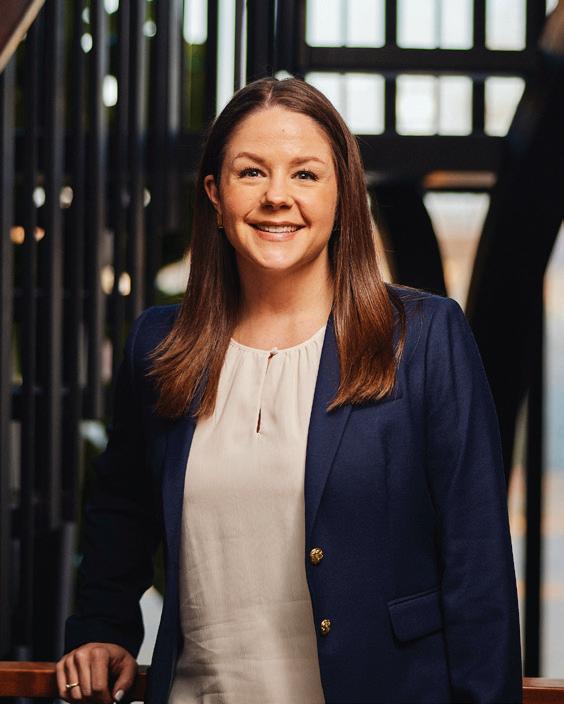




Reflecting on the Attorney Oath of Admission
Kristin Pawlik is the President of the Arkansas Bar Association. She is a partner at Miller, Butler, Schneider, Pawlik & Rozzell, PLLC in Northwest Arkansas.

On October 4, I had the honor to witness Chief Justice John Dan Kemp administer the Oath of Admission to Arkansas’s newest attorneys. It had been some time since I last heard the Oath read aloud, and as I listened, I felt goosebumps rise. In my 25th year of practice, the commitment we make to support the Constitution of the United States and the Constitution of the State of Arkansas resonated deeply—not as a lofty ideal but as a call to action. The pledge of civility, too, feels more necessary than ever.
After administering the Oath, the Chief Justice offered his congratulations to the admittees, inviting each Justice to do the same. What followed was an unflinching acknowledgement of the challenges of our profession. I’ve included selected portions of their remarks for your reflection as you “endeavor always to advance the cause of justice.”1 Videos of the ceremony may be viewed at this link: https://www.arcourts. gov/courts/supreme-court/oral-argumentvideos/other.
❖
I urge you to safeguard and improve your reputation and the reputation of our profession. Conduct yourself with honor, respect the legal system and give courtesy due to courts of justice and judicial officers. Never compromise your integrity. Work hard, keep your word, speak the truth and keep your promises. Remember that civility is not inconsistent with being a zealous advocate.
—Chief Justice John Dan Kemp ❖
You’re required to always be a zealous advocate... Zealously representing your clients’ interests within the bounds of the law... And let justice be done or the heavens fall. Go forth and defend the constitution.
—Justice Karen Baker
Attorney Oath of Admission
I will support the Constitution of the United States and the Constitution of the State of Arkansas, and I will faithfully perform the duties of attorney at law. I will maintain the respect and courtesy due to courts of justice, judicial officers, and those who assist them.
I will, to the best of my ability, abide by the Arkansas Rules of Professional Conduct and any other standards of ethics proclaimed by the courts, and in doubtful cases I will attempt to abide by the spirit of those ethical rules and precepts of honor and fair play.
To opposing parties and their counsel, I pledge fairness, integrity, and civility, not only in court, but also in all written and oral communications.
I will not reject, from any consideration personal to myself, the cause of the impoverished, the defenseless, or the oppressed.
I will endeavor always to advance the cause of justice and to defend and to keep inviolate the rights of all persons whose trust is conferred upon me as an attorney at law.
Our democracy is fragile, and the rule of law is being tested like never before... So... if you are brave enough to try and if you enter the arena and you fight the good fight, I need to warn you that the world will not necessarily stand up and applaud. But I challenge you to march on anyway.
—Justice Courtney Rae Hudson ❖
You have graduated, you’ve passed the bar, you have all the knowledge to practice... But then don’t forget that as you’re climbing up that ladder to reach down below and teach one.
And so, for the generation that comes behind you, be that teacher, too.
—Justice Rhonda Wood ❖
Today, you have a power you didn’t have before. You have a power to help your clients... And so in the great words of the philosopher, Uncle Ben, from the Spider-Man movie, “With great power comes great responsibility.” And when you think of that responsibility—truthfulness, honor, character, integrity—those are the things that go into building your reputation.
—Justice Shawn A. Womack ❖
Your oath is also that you’ve been given an opportunity not just to serve your client, but to serve your community. So, look for opportunities where you can help either your family, your church, your schools, your community where you can give back.
—Justice Barbara Webb ❖
What you do as an attorney matters. It matters to other people... We have a responsibility, and you do need to be faithful to that duty and to that responsibility. But don’t lose sight of the quality of life and the people around you that need you. They need your time. Be sure to be intentional about spending time with your family and not letting the importance, the true importance of what you’re doing, get in the way of the family that needs you.
—Justice Cody Hiland
Endnote:
1. In re Attorney Oath of Admission, 2012 Ark. 82. ■



Rodney Moore
Scott Irby
Connecting and Engaging the Next Generation of Arkansas Lawyers
With the 2024-2025 year well underway, the Young Lawyers Section has hit the ground running. I was fortunate to be invited to speak at the new student orientations for both the University of Arkansas School of Law in Fayetteville and the William H. Bowen School of Law in Little Rock. These presentations were great opportunities to meet the incoming classes of law students to our state and introduce the Arkansas Bar Association to the next generation of our organization. It was also a great opportunity to explain to the students the value of membership in our association, especially when it costs them nothing.
It’s been a little while since I was in law school, so I had to be reminded that membership into the Bar Association is free for law students. This is a great value to the students, and it also presents a great opportunity to introduce new members to our organization. A student can join the association at any time for free and get full access to all the benefits that we enjoy every year with our membership. This allows the students to experience what it is like to be a member, and it gives them plenty of time to explore the resources that we provide. Because of this, it has become my goal to sign up every law student in Arkansas to the Bar Association. I would also ask you, dear reader, to keep this in mind if you attend an event with a law student this year. If you are visiting with any law students, please remind them that they too can join our organization today for the low cost of absolutely free.
Along with our outreach work this fall, YLS co-sponsored two clinics with the Arkansas Access to Justice Commission: one in Northwest Arkansas and one in Little Rock. I was able to join for the Little Rock clinic and am happy to say that we had a great turnout of both lawyers and students. At the event, I worked at a table with two law students answering questions on the

Free Legal Answers website. The event itself was a fun opportunity to work through legal questions that could rival bar exam hypos. It was also a good opportunity to provide some practical experience to the students, another important goal for the Young Lawyers Section this year.
I am often asked about what issues I see new attorneys are facing, and professional experience (or the lack thereof) is a topic that always comes up. There are many causes of this problem, but at the end of the day students and new attorneys are not getting



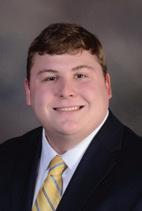

Frank LaPorteJenner is the Chair of the Young Lawyers Section. Frank is a managing partner of LaPorte-Jenner Law, PLLC.
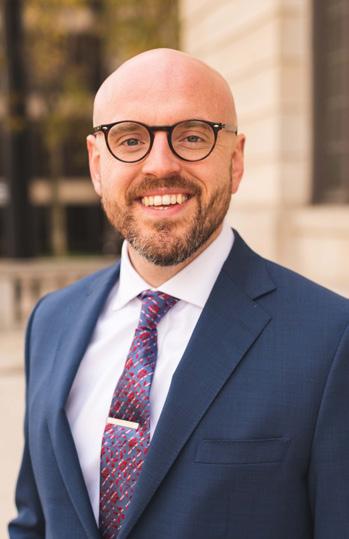
enough opportunities to do meaningful legal work at the early stages of their career. Our goal is to make YLS a resource for providing those opportunities. For example, we started planning our annual Wills for Heroes clinic, and we plan to recruit students from both schools to join with our volunteer attorneys, making the clinic both a pro bono event and a professional development opportunity. We are going to continue to plan other professional development programs this year, but I will also turn once again to you, dear reader, for your help. If you have an upcoming pro bono event, please reach out so YLS can help recruit young attorneys and law students to join as well. Young professionals are always looking for ways to put their education into practice; they just need to know where to go.
Frank owns and manages LaPorte-Jenner Law, PLLC with his wife Kelli, and can be reached anytime at frank@LPJlaw.com ■
2024-2025 YLS Executive Council
Frank LaPorteJenner, Chair
Breanna Jordan McLaren Chief Engagement Officer
Justin W. Harper District B Rep.
William T. Harris District C Rep.
Grace Wewers
Fletcher At-Large Rep.





Samuel W. Mason, Chair-Elect & District A Rep.
Hayley Ferguson District B Rep. Brittany Hawkins District A Rep.
Will Hegi District C Rep.
Eli Cummins At-Large Rep.
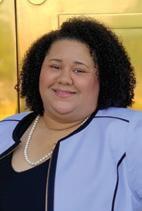
Dominique D. Lane Secretary/ Treasurer & At Large Rep.

Marcus A. Priest District A Rep.

Syndey L. Rasch
District B Rep.

Ledly S. Jennings District C Rep.
Frank at the U of A law school orientation
Honoring Arkansas Bar Members Who Served
in the U.S. Military
Celebrating the Courage and Dedication of Our Military Members

We proudly honor the members of the Arkansas Bar Association who have served in the United States military. Their dedication and sacrifice have made a lasting impact on our nation, and we pay tribute to their commitment with deep respect. A detailed list of these members’ contributions, including posthumous recognitions, is available on our website. While this record celebrates their bravery, we recognize that it may not include all who have served. If you know someone who should be included in future publications, please contact the editor. Let us together ensure that their legacy of courage and sacrifice is always remembered.
Please visit ArkBar’s Tribute to Members who Have Served in the Military at the link below or scan the above code: https://www.arkbar.com/members/members-in-the-military
Overton Anderson
Philip S. Anderson
James A. Badami
Frank Bailey
Michael D. Barnes
Marilyn Dearien Barton
Zach Baumgarten
Jonathan W. Beck
Joe Benson
Ed Bethune
Allen W. Bird II
Sam N. Bird
Judge Denzil Keith Blackman
Daniel C. Blaney
John Dudley Bridgforth
Charles A. Brown
Major Natalie G. Brown
LeAnne Pittman Burch
William Jackson Butt, II
Anthony B. Cameron
Worth Camp, Jr.
Jennifer Carlisle
Charles L. Carpenter, Jr.
Jerry W. Cavaneau
John S. “Jack” Cherry
Murray Claycomb
Nathan Coulter
F. Thomas “Tom” Curry
Justice Paul Danielson
Thom Diaz
Jerry Dodd
Greg Downs
Don R. Elliott, Jr.
Bob Estes
Peter G. Estes, Jr.
John C. Everett
Judge Vic Fleming
William Charles Frye
Sam Gibson
Martin G. Gilbert
John P. Gill
Morton Gitelman
James C. Graves
Ron Griggs
Judge Wayne Gruber
Will Gruber
Judge David F. Guthrie
Stuart W. Hankins
Dick Hatfield
William D. Haught
Robert L. “Skip” Henry
Donald C. Hill
Randal Hobbs
Cyril Hollingsworth
James W. Hyden
Greg S. James
C. Cole Jeffries, Jr.
Glenn W. Jones
Robert L. Jones, Jr.
Dak Kees
Joseph M. Kraska
Tim Leathers
M. Melissa Lee
John C. Lessel
Fletcher C. Lewis
Stark Ligon
Phillip A. McGough
Joseph P. McKay
Cody A. McKinney
J. Conley Meredith
Cal McCastlain
James McMenis
Henry N. Means, III
Russ Meeks
George B. Morton
Lee Muldrow
J. R. Nash
Edward Nelson
Judge David Newbern
Jim Nickels
Alan J. Nussbaum
Richard C. Ourand, Jr.
Hugh Overholt
William L. Owen
Michael Parker
Eudox Patterson
Ellis Lamar Pettus
David Dero Phillips
John M. Pittman
George Plastiras
David M. Powell
Donald E. Prevallet
Joseph Purvis
Brian D. Rabal
John “Buddy” W. Raines
Gordon S. Rather, Jr.
Herbert Lynn Ray
Chris Rittenhouse
George Ritter
Fred Roberson
William S. Robinson
Adam M. Rose
James (Jim) A. Ross, Jr.
Thomas S. Russell
Marissa A. Savells
Corey Seats
Brenda Simpson
Damon C. Singleton
Berl S. Smith, Jr.
James E. Smith, Jr.
Judge Kim Smith
Richard H. Smith
Scott E. Smith
Paul Suskie
F. Mattison Thomas III
Lonnie C. Turner
Richard E. Ulmer
Fred Ursery
Glenn Vasser
Magistrate Judge Joe Volpe
Wyman R. (“Rick”) Wade, Jr.
Stan L. Warrick
John Dewey Watson
Todd C. Watson
Richard N. Watts
Phillip Wells
David H. Williams
W. Jackson Williams, Jr.
Wayne Williams
Judge Billy Roy Wilson
Jeffery D. Wood
Daniel H. Woods
Judge Wm. Randal Wright
Steven S. Zega


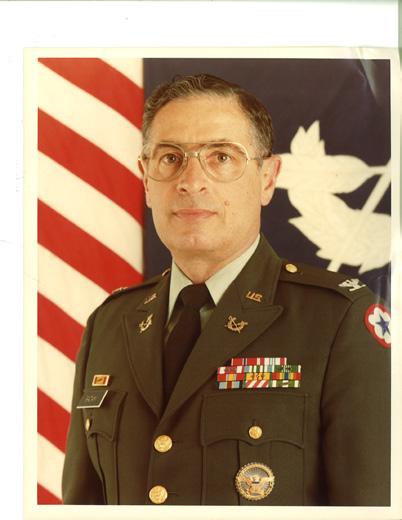


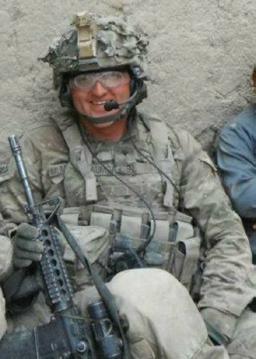
















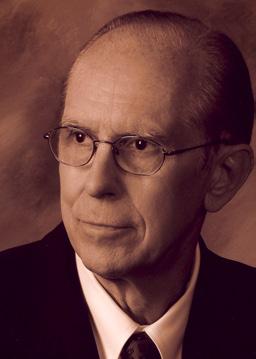



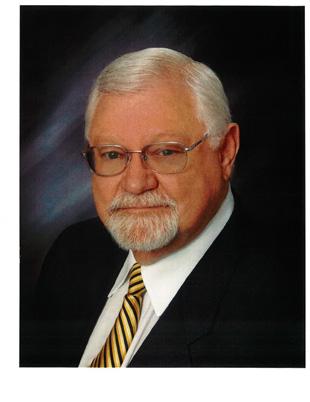





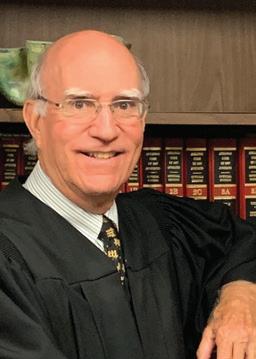









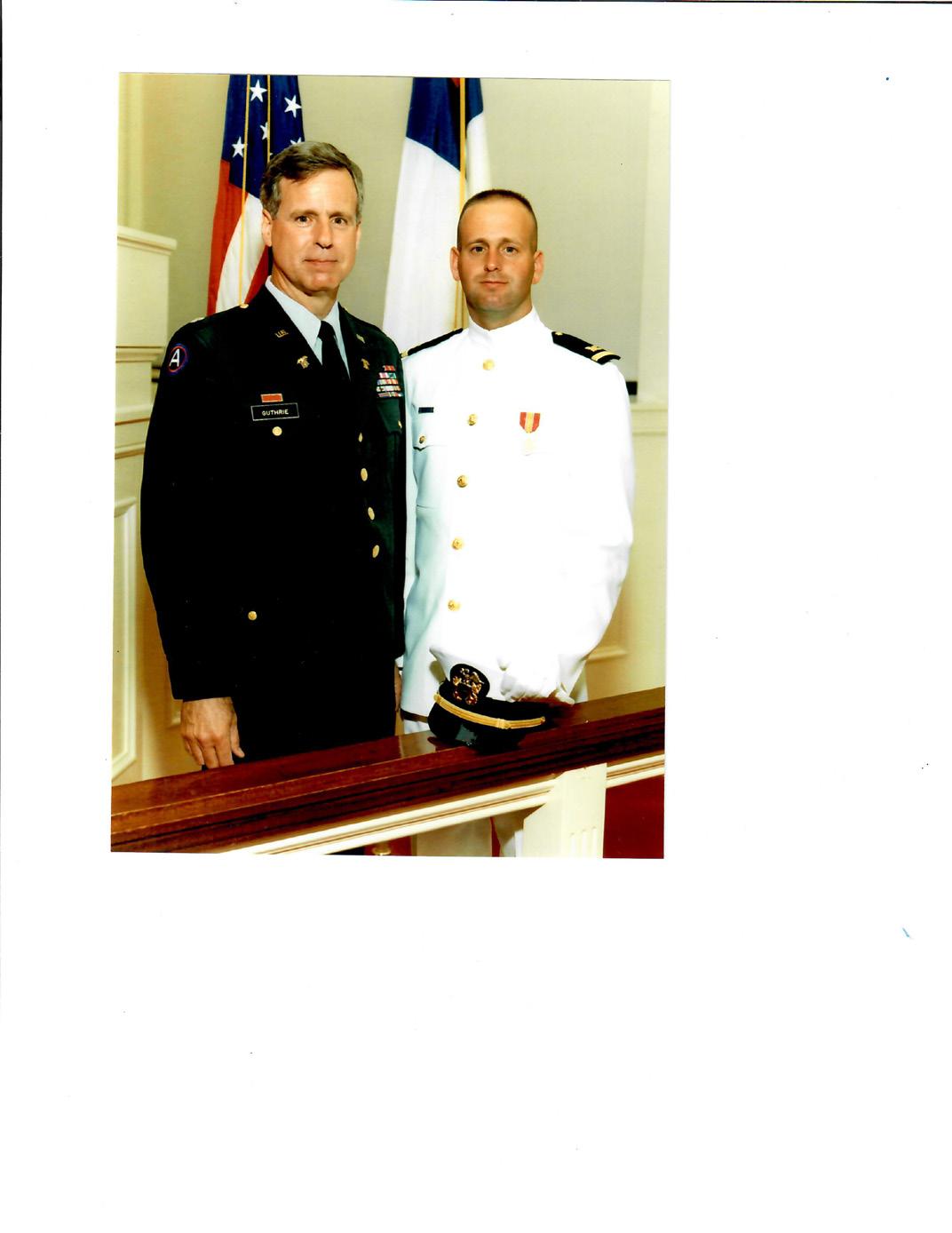



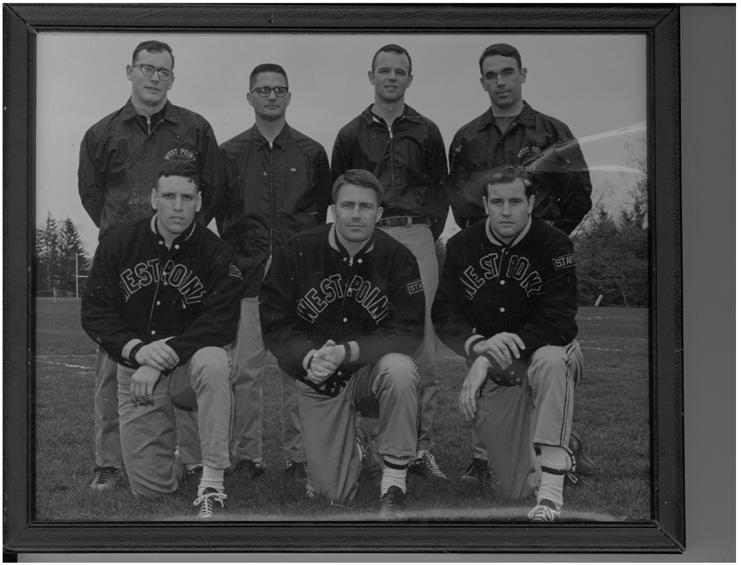



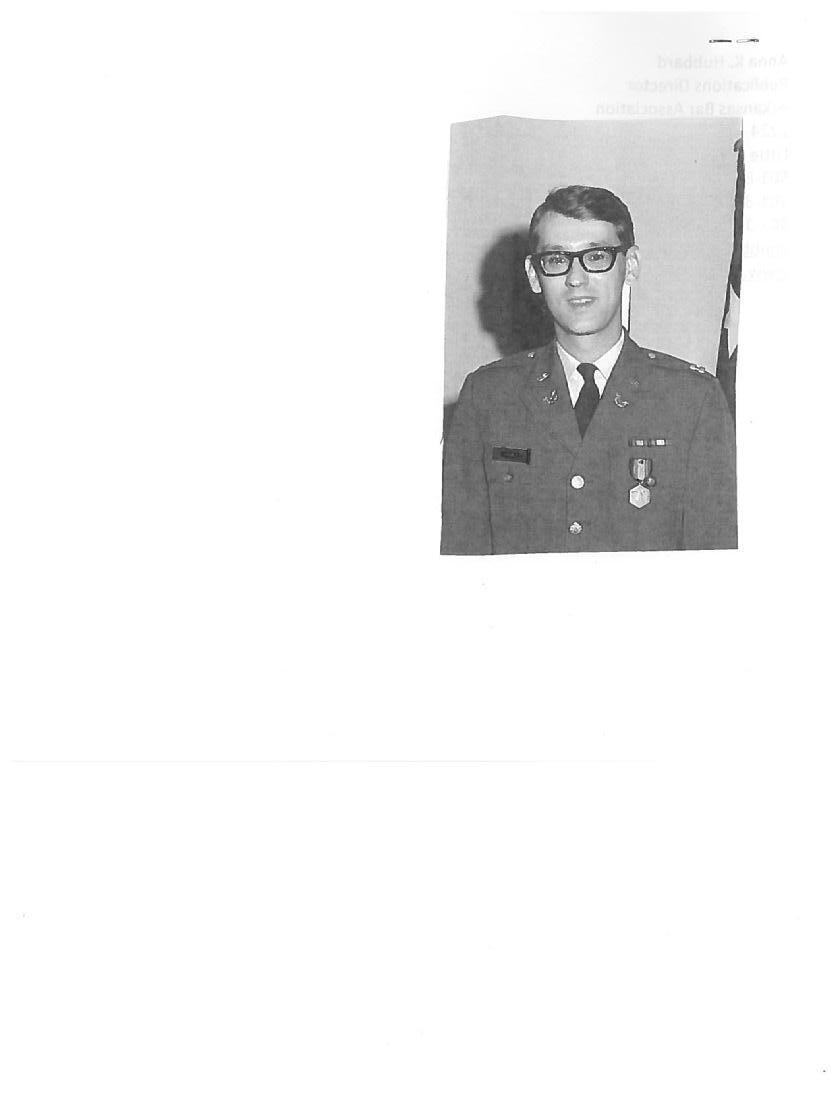


Bethune
Bird A. Bird S. Blackman
Brown Burch Butt Camp
Carlisle Coulter Curry
Anderson O. Anderson P. Badami Bailey Beck Benson
Bridgforth
Dodd Elliot Downs
Gitelman
Graves Griggs Gruber Wa. Gruber Wi. Guthrie
Barnes
Haught Henry
Hill Hobbs
Hyden James Jones Kees Leathers Kraska
Danielson Holt
Fleming
Baumgarten
Diaz Claycomb
Cameron



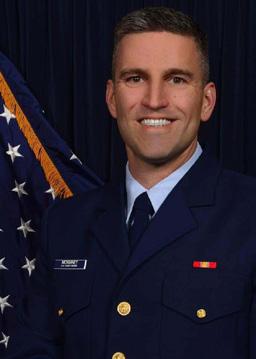


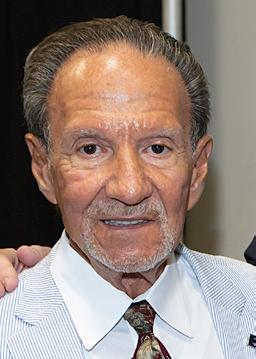













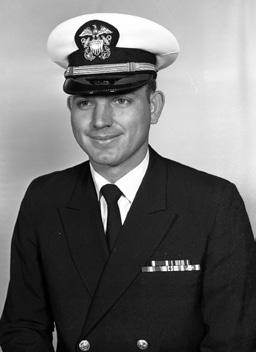





Pettus
Ursery
Ray Watts
Raines
Morton Meeks
McKay
McMenis
Meridith
McGough
Williams D. Wade
Suskie
Nussbaum
Purvis
McKinney
Parker
Muldrow
Vasser
Ligon

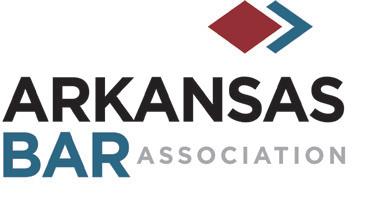
ArkBar’s Statement of Ownership for USPS is printed here. PS Form 3526 is required by the Post Office annually to show proof of continued eligibility for mailing under a Periodical Permit.
January 27th
Deadline for submission of completed nomination forms to the Arkansas Bar Association’s Secretary
A Call to Leadership Election Cycle Timeline
February 10th Deadline for mailing of ballots in contested races
March 3rd Deadline for receipt of signed ballots
Nominations are being collected for the Office of Secretary and American Bar Association Delegate positions. Nominating petitions for the office of President-Elect are due the first Monday in October 2025. The next President-Elect Designee will come from Bar District A. Contact Karen Hutchins at 501-801-5663 for information on these positions.
Boone, Carroll, Crawford, Franklin, Johnson, Logan, Madison, Newton, Sebastian B9-15 28 9 Pulaski
4 2 Baxter, Cleburne, Conway, Faulkner, Fulton, Independence, Izard, Jackson, Lawrence, Marion, Perry, Pope, Randolph, Searcy, Sharp, Stone, Van Buren, White, Yell
4 1 Clay, Craighead, Crittenden, Cross, Greene, Lee, Mississippi, Monroe, Poinsett, Prairie, St. Francis, Woodruff
Arkansas, Ashley, Bradley, Calhoun, Chicot, Clark, Cleveland, Columbia, Dallas, Desha, Drew, Grant, Jefferson, Lincoln, Lonoke, Ouachita, Phillips, Union
Garland, Hempstead, Hot Spring, Howard, Lafayette, Little River, Miller, Montgomery, Nevada, Pike, Polk, Saline, Scott, Sevier



Specialist 5 (E-5) Fred Ursery 6th Battalion/77th Artillery in Cu Chi and Can Tho, Vietnam March
1, 1968-April 1, 1969
By Fred Ursery
“At the time I served there were about 500,000 troops there. Over 58,000 people were killed; that figure includes 592 Arkansans.”

Fred Ursery is Of Counsel with Friday, Eldredge & Clark in Little Rock. He served in the Vietnam War in 1968-1969.
When asked if I would write an article about my Vietnam service for the Fall issue of this magazine, which features members who have served in the military, I was honored and agreed to do so. By the next day I regretted my decision. However, I thought this might be an opportunity to tell some and remind others what this chapter in our history was like. And to recognize the many veterans who served. At the time I served there were about 500,000 troops there. Over 58,000 people were killed; that figure includes 592 Arkansans.
Yogi Berra is quoted as saying, “You can observe a lot just by watching.” So I can provide a bird’s-eye view of what I saw for whatever relevance it has to the bigger picture.
I graduated from law school in May of 1967. I was 25 years old and single. This was at the height of the Vietnam war. The military draft was in effect. This was before the draft lottery. I had been deferred by my local draft board through college and law school. Most of the men in my law school class were in the same boat. Everyone was scrambling to figure out what to do about the draft. Most people decided to take the bar exam first and then deal with the draft. No one was looking for a job.
Fortunately, I passed the Arkansas Bar in July of 1967. I then moved to the draft problem. My local draft board informed me that I would be drafted in December. There were very few law job opportunities for a July-to-December stint. I decided to go ahead and sign up for the military and get it out of the way. I tried to join the National Guard but at that point all of the units in the state were full and there were long waiting lists for any vacancies. I thought that since I was a lawyer I would just join the Army and sign up to be a member of the Judge Advocate General’s Corps. I learned that every newly-graduated lawyer in the country had the same idea. I was told that if I signed up for five years I would then be considered for a legal position. The military needed a lot of people, but it did not need many lawyers.
I was told that I could apply to join either the Infantry, Armor or Artillery. I chose the Artillery because it sounded like the lesser of three evils. I signed up for two years. In August of 1967 I was sworn in and put on a Greyhound bus for a ride to Ft. Leonard Wood, Missouri, for basic training. I was with a busload of other recruits. Most of the other people were just out of high school, so I was about seven years older than everyone else. We arrived at basic training, got our heads shorn,


and began eight weeks of physical training. It was an abrupt change to go from law school to the demands of a drill sergeant. I did have the sense to conceal that I was a lawyer.
After basic training, I was sent to Ft. Sill, Oklahoma, for eight weeks of advanced training to learn how to be an artilleryman. After I completed my artillery training I was offered the opportunity to go to Officer Candidate School. At the end of my first 10 months in the Army, I would be a 2nd Lt. However, those first 10 months would not count toward my two-year commitment. I would have to serve two years and 10 months. I declined the opportunity and decided to serve my two years as an enlisted man.
At the end of my artillery training, I received my orders to go to Vietnam. These were the same orders received by 99% of my fellow soldiers. I arrived in Vietnam on March 1, 1968, just four days shy of my 26th birthday and several weeks after the Tet Offensive.
I was a PFC and I was sent to join the 6th Battalion/77th Artillery in Cu Chi, Vietnam. The Battalion was part of the 25th Infantry Division. Cu Chi was located about 30 miles northwest of Saigon. I was a replacement for someone who had served his one-year tour of duty

and rotated home. I soon learned that everyone’s main pre-occupation was to count off the days until your one-year tour of duty was over. In July of 1968 our battalion was transferred to Can Tho, Vietnam. It is located in the southern part of the country in the Mekong Delta
Our battalion was a 105-howitzer unit. A 105 howitzer could fire rounds that would go up to seven miles away. These rounds were fired in support of our infantry forces.
Fortunately, I was not assigned to the tough and dirty job of actually loading and firing the howitzer. I became a radio operator and was given the task of receiving the fire mission requests from the infantry and giving that information to our men so they could deliver the requested artillery fire. That was more nerve-racking than it sounds because we had to also keep track of where our troops and helicopters were located so we would not inadvertently shoot them.
When we were in Cu Chi, we were often attacked by Viet Cong (VC) mortars and rockets. Some of these landed nearby but most did not. We later learned that the VC had an elaborate system of tunnels under Cu Chi. The VC would come out and fire and then retire to the safety of the tunnels.
1968 was the deadliest year of the war. There were 16,899 Americans killed. May
“1968 was the deadliest year of the war. There were 16,899 Americans killed. May of 1968 was the deadliest month of the war. There were 2,169 killed.”
of 1968 was the deadliest month of the war. There were 2169 killed. When I was at Cu Chi our unit was located across from the 25th Infantry morgue, and there was a constant stream of trucks with Red Crosses on the side delivering dead bodies.
Since I had gone to law school, I was one of the oldest men in the unit. Most of the men were recent high school graduates, although there were some college graduates. When the men found out I was a lawyer I was given the nickname “Perry Mason.” After awhile, as new men rotated into the unit, many of the men actually thought that was my name.
I recall the saddest occasion for me during my tour. One of our helicopters crashed and all six of the people on board were killed. I knew all of them.
Malaria was also a problem. We were given pills to take about every two weeks which supposedly prevented malaria. However, the pills caused severe stomach aches. Many of the men acted as if they were taking the pill and then spit it out. One of the men in our unit died from malaria.
One of the more gruesome memories I have is that one of our men was riding in the back of a jeep in a field with his legs dangling over the back. The jeep hit a landmine and blew his leg sky high. The medic instructed us to go search for his leg.



Fortunately I was not the one who found it. The man bled to death before the medevac helicopter arrived.
On one occasion I was driving a truck in a convoy and the vehicle right ahead of me hit a road mine. The VC road mines were not as powerful as the ones today, and the men only sustained shrapnel wounds.
1968 was an eventful year back in the U.S. as well. One of my relatives gave me a subscription to the Arkansas Gazette which was delivered to me in Vietnam. Shortly after I arrived I read about LBJ’s decision not to run for re-election, the next month MLK was killed, and then
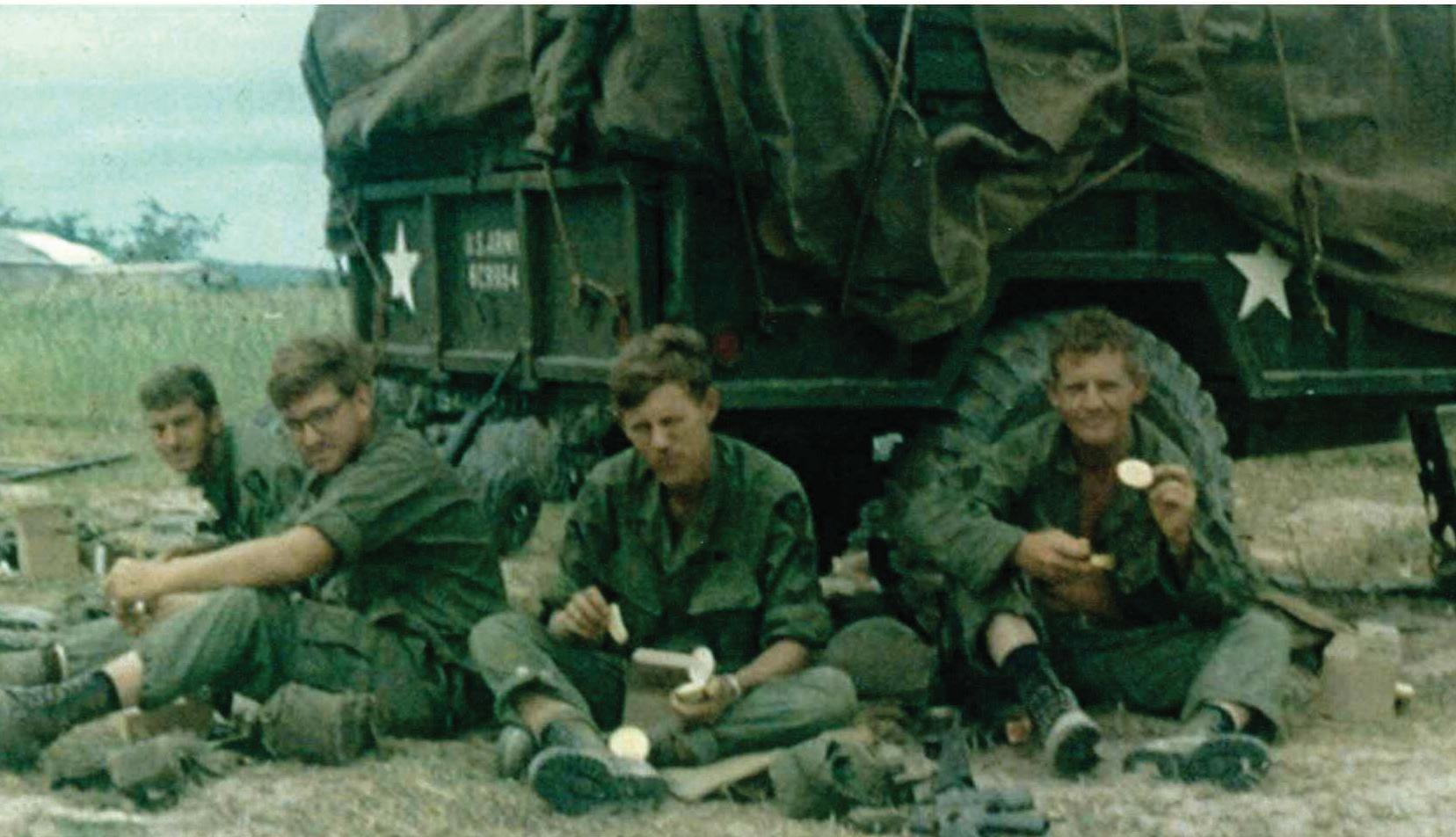
RFK was assassinated. The troops in Vietnam were beginning to wonder what was going on at home.
Most people do not ask me questions about my Vietnam service and that is fine with me. It is usually the younger people like my grandson who will go to the heart of the issue and ask, “How many people did you shoot?” He was disappointed when I told him none.
Most of my experience with “combat” was when our positions would receive sporadic rocket and mortar fire. On one rare occasion my unit was directly attacked at night by the VC. I could actually hear them hollering but never saw them. Our men were able to lower our howitzers and fire at them at point blank range with beehive rounds. We were also able to secure the assistance of a Cobra helicopter gunship which arrived and used its awesome firepower. A friend of mine told me that he counted over 50 VC bodies the next morning. I took his word for it. He did show me a pair of sandals made out of cut up tire treads that he had taken off one of the VC. My only involvement in this incident was watching the Cobra gunship in action.
My most vivid memories of Vietnam are the children. Whenever we were out in the field, the children would appear out of nowhere and want to eat our C-rations and smoke the cigarettes which were included. The C-rations were not that good anyway, but it was impossible to eat
with a young kid asking for your food. The most popular item in the C-rations was the canned peaches. The only problem was that, as soon as you opened the can, the flies descended on the syrup. When I arrived in Vietnam I was issued an M-16 automatic rifle. I spent a lot of time taking it apart and cleaning it. Fortunately, I never had to use it. One of my Vietnam veteran friends said recently on Facebook: “I was glad when the government took my automatic rifle from me.”
I ended up serving 13 months in Vietnam. The Army had a rule that if you returned to the U.S. with six months or less left on your two years you would be discharged. I made the bet that one additional month in Vietnam would not be as bad as six months in Ft. Sill, Oklahoma. I returned to the U.S. and was discharged as a Specialist 5 (E-5), which was the equivalent of a sergeant, on April Fool’s Day 1969. On May 1, 1969, I joined the Friday Firm. The main benefit I get today for my service is free hearing aids from the VA.
I know that a number of the current members of our association served in Vietnam. Some were wounded and many were decorated for their service. They are recognized elsewhere in this edition. I hope that this article will help remind our members of this difficult time in our history and the terrible loss of life. ■

Unraveling the Facts. Delivering the Truth.
What We Offer
Expert Testimony: Unbiased, clear, and professional expert testimony in court to support your legal cases
Forensic Investigations: Comprehensive analysis of accidents, mechanical failures, product defects, and more.
Detailed Reports: Thorough and scientifically backed reports that stand up to legal scrutiny
Consultation Services: Collaborate with attorneys to develop a sound legal strategy with solid engineering expertise.
Why Choose Us?
Years of Experience: Our team of forensic engineers brings years of hands-on experience in the field.
Credibility in Court: Trusted by top law firms for delivering concise, accurate, and compelling testimony that juries and judges can understand
Timely & Professional Service: We work diligently to meet your deadlines while maintaining the highest quality standards
Expert Witness Testimony
Mechanical Equipment Failures
VAR- Accident Reconstruction
Agriculture Accidents and Equipment
HVAC Fires & Product Liability
UALR William H. Bowen School of Law Veterans Legal Services Clinic
By Professor Rebecca Feldmann
The Veterans Legal Services Clinic (VLSC) is the newest of the six in-house clinics at the University of Arkansas - Little Rock (UALR) William H. Bowen School of Law (Bowen). The VLSC, and the clinical program more broadly, embody Bowen’s commitment to its core values of access to justice, public service, and professionalism. The idea for a clinic at Bowen that would cater exclusively to the needs of Arkansas veterans was the brainchild of Bowen graduate Simon Kelly, now a veterans disability lawyer with Rob Levine Law.1 In 2019, the law school received the funding that would make Kelly’s dream a reality.2
After meeting with community partners and assessing the needs of the population the clinic intended to serve, the VLSC began taking applications from veterans in the Fall of 2020. The first class of VLSC students began working with their clients in January 2021. Since that time, the VLSC has provided trauma-informed advocacy for veterans who have endured service-related injuries, while providing law students a service-oriented learning experience. To date, 52 students have taken the clinic. As Kelly envisioned, the students work, under the supervision of a licensed and VA-accredited attorney, to help veterans navigate the VA compensation process. Additionally, clinic students help correct errors or injustice in their discharge paperwork, based on changes in military policy surrounding the treatment of mental health conditions.
I. The VLSC’s Services
The VLSC serves veterans in three ways—through our in-house clinic, through our Pro Bono Program, and through resources we provide on our website.
A. In-house Clinic

Rebecca Feldmann is the Director of the Veterans Legal Services Clinic at the William H. Bowen School of Law.
The VLSC’s in-house clinic serves both to provide much-needed legal assistance to Arkansas veterans and to give Bowen students a critical, hands-on learning experience. In our in-house clinic, we provide trauma-informed advocacy on behalf of veterans with disabilities related to their service, helping them navigate the VA appeals process. Additionally, we represent veterans with post-traumatic stress disorder (PTSD) and other mental health conditions who received a less than fully honorable discharge as a result of behaviors associated with that condition. The clinic helps these veterans apply to the Department of Defense (DoD) boards to upgrade their discharge status and make any other necessary corrections to their military records, based on policy guidance issued by the DoD beginning in 2014.3
Under the supervision of a VA-accredited attorney, students in the clinic work on discharge upgrades and VA disability claim appeals for veterans with PTSD, traumatic brain injury (TBI), or another mental health condition related to their service. The clinic focuses on providing traumainformed advocacy to its clients, who include survivors of military sexual trauma (MST). For these veterans, having representation can make a world of difference in their ability to access life-altering benefits.
So-called “bad paper”—i.e., less than fully honorable discharges from the military— frequently co-occur with military-related trauma, such as PTSD, MST, and TBI.4 And veterans with bad paper are more likely to experience homelessness, more likely to have a substance use disorder, more likely to commit suicide, and more likely to experience incarceration.5 Thus, a core part of the clinic’s mission, since its inception, has been to serve those individuals whose less than fully honorable discharges coincided with an in-service traumatic event. In doing so, our clinic has worked in conjunction with community partners like the VA Day Treatment Center to both provide direct services to eligible
RELATIONSHIPS ARE OUR FOUNDATION
We partner with attorneys, CPAs and other financial advisors to help their clients achieve philanthropic goals. The Foundation provides expertise and tools to maximize tax benefits while achieving the greatest impact for local programs. The process is easy, flexible and efficient. Arkansas Community Foundation: engaging people, connecting resources and inspiring solutions to build Arkansas communities.


must meet a minimum number of yearly CLE requirements, as detailed at 38 C.F.R. § 14.629(b)(iii)-(iv) (2023). To assist attorneys with this requirement, VLSC provides free CLE opportunities for its volunteers. For example, each year since 2021, we have partnered with the Attorney General’s office and the Arkansas Army National Guard, Office of Legal Assistance to provide CLEs on topics specifically impacting veterans. In addition, the VLSC regularly hosts symposia, which provide volunteers the opportunity to receive CLE credit, practical advice related to veterans’ law, and an opportunity to network.7 We are excited to partner with even more Arkansas lawyers to expand our services to veterans across the state in the years to come!
More information about the Veterans Legal Services Clinic can be found at https:// ualr.edu/law/clinical-programs/veterans-legalservices-clinic/. To volunteer, you can fill out the form at https://docs.google.com/forms/d/ e/1FAIpQLSePkUSnqbABFnBKNl7mxsv6o VtXpprHzs9q9FOMrtFRmJE7Ng/viewform or contact Zach Baumgarten, VLSC Pro Bono Program Director, at zjbaumgarten@ ualr.edu. For other questions, you can contact the VLSC Director, Rebecca Feldmann, at rlfeldmann@ualr.edu.
Endnotes:
1. Tracy Courage, Bowen School of Law announces new Veterans Legal Services Clinic, University of Arkansas at Little Rock (Aug. 20, 2019), https://ualr.edu/newsarchive/2019/08/20/veterans-legal-clinic/; Rob Levine Law, Attorneys, https://roblevine. com/department/attorneys/.
2. Tracy Courage, Bowen School of Law announces new Veterans Legal Services Clinic, University of Arkansas at Little Rock (Aug. 20, 2019), https://ualr.edu/newsarchive/2019/08/20/veterans-legal-clinic/; John Moritz, Law school gets veterans clinic Arkansas Democrat Gazette (Aug. 21, 2019), https://www.arkansasonline.com/ news/2019/aug/21/law-school-gets-veteransclinic-2019082/.
3. See Memorandum from Chuck Hagel, Sec'y of Def., U.S. Dep't of Def., to Sec'ys of the Mil. Dep'ts attach. 2 (Sept. 3, 2014), https://arba.army.pentagon.mil/documents/ SECDEF%20Guidance%20to%20 BCMRs%20re%20Vets%20Claiming%20 PTSD.pdf (“Hagel Memo”); Memorandum

from Brad Carson, Acting Under Sec'y of Def. for Pers. & Readiness, U.S. Dep't of Def., to Sec'ys of the Mil. Dep'ts 1 (Feb. 24, 2016), https://afrba-portal.cce.af.mil/app/ assets/2016-Carson-Memo-24-Feb-2016.pdf (“Carson Memo”); Memorandum from A.M. Kurta, Acting Under Sec'y of Def. for Pers. & Readiness, U.S. Dep't of Def., to Sec'ys of the Mil. Dep'ts 1 (Aug. 25, 2017), https:// dod.defense.gov/portals/1/documents/pubs/ clarifying-guidance-to-military-dischargereview-boards.pdf (“Kurta Memo”); Memorandum from Robert L. Wilkie, Under Sec'y of Def., U.S. Dep't of Def., to Sec'ys of the Mil. Dep'ts 1 (July 25, 2018), https:// afrba-portal.cce.af.mil/app/assets/2018Wilkie-Memo-25-Jul-2018-DRB-Guidance. pdf (“Wilkie Memo”).
4. See Hugh McLean, Discharged and Discarded: The Collateral Consequences of a Less-than-Honorable Military Discharge, 121 Colum. L. Rev. 2203, 2205–06 (2021); Randall B. Williamson, GAO-17-260, DOD Health: Actions Needed to Ensure PostTraumatic Stress Disorder and Traumatic Brain Injury Are Considered in Misconduct Separations 12, U.S. Gov't Accountability
Off. (2017); Swords to Plowshares, Veterans and Bad Paper Fact Sheet (June 2015), available at swords-to-plowshares.org.
5. Underserved: How the VA Wrongfully Excludes Veterans with Bad-Paper Discharges 21–22, Veterans Legal Clinic, Legal Svcs. Ctr. of Harvard Law Sch. (2016), available at swords-to-plowshares.org.
6. The VA’s Office of General Counsel provides the application for accreditation, as well as detailed instructions about how to apply, on its website. Accreditation, Discipline, & Fees Program, U.S. Dept. of Veterans Aff., Office of General Counsel, https:// www.va.gov/ogc/accreditation.asp (Sept. 17, 2024); How to Apply for VA Accreditation as An Attorney or Claims Agent, U.S. Dept. of Veterans Aff., VA Accreditation Program, https://www.va.gov/OGC/docs/ Accred/HowtoApplyforAccreditation.pdf.
7. See 2023 Veterans Legal Services Clinic Symposium, UALR William H. Bowen School of Law, https://ualr.edu/law/ clinical-programs/veterans-legal-servicesclinic/2023-veterans-legal-services-clinicsymposium/. ■

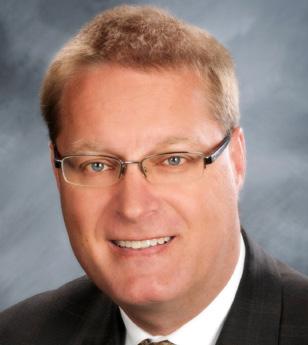
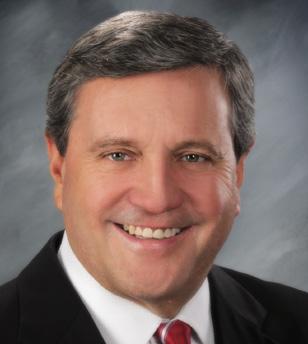


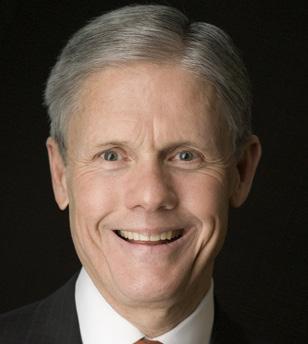


Legislative Hearings: Playing by the Right Rules
By Frank Arey and Emily White
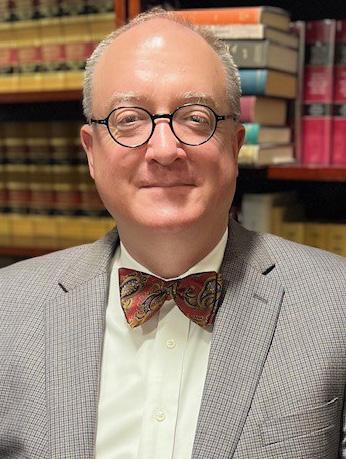
Frank Arey opened an appellate practice in Little Rock after serving 16 years as Arkansas Legislative Audit's legal counsel.

Emily White currently serves as legal counsel for Arkansas Legislative Audit.
Legislative committee hearings might feel familiar to attorneys. Committee chairs preside more or less in compliance with known rules, calling witnesses and recognizing legislators for questions. Witnesses testify and provide documents; on rare occasions they might be under subpoena, and they may swear an oath prior to testifying. Legislators pose questions in pursuit of relevant information.
This familiarity can be deceptive. As one expert observed about congressional investigations, legislative committees utilize a “legal process with unique and explicit rules and procedures.”1 Most hearings don’t reveal the very real differences between legislative and judicial rules and procedures. But sometimes those differences matter—and they can be substantial. For example, witnesses don’t have a right to counsel, evidentiary privileges are not applicable in legislative proceedings, and relevance is a much broader concept when applied to legislative inquiries.
This article’s goal is to illustrate some differences between legislative and judicial rules and procedures. The context is presumed to be hearings involving legislative oversight or legislative investigations. Examples include an attorney appearing before the Legislative Joint Auditing Committee with a client involved in an audit finding, or with a contractor involved in a transaction under review by the Joint Performance Review Committee. Law from other jurisdictions will be cited where Arkansas law does not yet address an issue. At the end of this article there are suggested resources for further study.
Witnesses do not have the right to have an attorney present. Your legislative witness client does not have the right to your presence. A legislative hearing is not a trial. Your client is a witness, not a party.
An 1885 decision of the Court of Appeals of New York expounds on this observation. A legislative committee pressed contempt charges against a witness; he defended his actions, in part, with a claim “that the committee refused to recognize his right to be attended by counsel….”2 But the appellate court was “of opinion that he had no constitutional or legal right to the aid of counsel on such examination.”3
“Take advantage of applicable resources to prepare for legislative hearings. There are resources available to interested attorneys.”

But here [the witness] was not on trial, nor was he a party, but he was a mere witness … and there was no trial pending against anyone. As well might a witness, examined before a grand jury conducting an investigation of a charge against another person, with a view to his indictment, claim the right to be attended by counsel. We do not think that a mere witness has that right.4
As the Supreme Court of New York stated, “a witness has no right to counsel … in a legislative inquiry….”5 Nonetheless, attorneys may be present and participate in Arkansas legislative proceedings—to some degree—as a matter of legislative grace. Committee chairs have the discretion to permit such participation.6 Committee rules can also permit attorney participation. At this writing, the rules of Arkansas’s Legislative Joint Auditing Committee provide: “A witness may be accompanied by counsel of the witness’s own choosing, who may advise the witness as to the witness’s rights, subject to reasonable limitations … to prevent obstruction or interference with the orderly conduct of the hearing.”7
Attorney participation, if allowed, can be very limited. Attorneys should not expect to do more than advise their clients
during legislative proceedings. Because legislative investigations are not trials potentially resulting in criminal sanctions, the Sixth Amendment confrontation right does not apply, and witnesses do not have the right to cross-examine others or to present evidence in their own behalf.8 Legislative rules or the committee’s discretion will govern the order of testimony and the ability to make opening or closing statements, offer evidence, or cross-examine other witnesses.9 Your ability to answer for your client is at the chair’s discretion.
If permitted to advise a client under examination, attorneys should avoid “coaching” that witness.10 Legislators are generally more interested in hearing from witnesses, not their attorneys, in the authors’ experience.
Attorneys will need to gauge whether a particular hearing requires a higher level of preparation, even if their role is likely to be limited. Most hearings won’t require extensive participation by an attorney. But there are instances when a witness might benefit from counsel’s advice about matters such as the privilege against selfincrimination, whistleblower protection, or perjury charges arising out of the witness’s testimony.11 On these occasions, to paraphrase Brendan Sullivan’s retort during the Iran-Contra hearings, the attorney isn’t there to be a potted plant.12
The Arkansas General Assembly makes its own rules. Ark. Const. art. V, § 12, provides that “[e]ach house shall have power to determine the rules of its proceedings….” This provision authorizes the General Assembly to determine the propriety and effect of any action taken in the exercise of any power, transaction of any business, or performance of any duty.13 For example, although the Arkansas Freedom of Information Act requires open meetings of governing bodies, the “rules of proceedings” provision likely makes any legislative decision to close a committee meeting nonjusticiable.14
Attorneys participating in legislative proceedings must be familiar with legislative rules. Rules applicable in judicial proceedings don’t apply unless adopted by the General Assembly. Legislatures “have the last word on their proceedings” so that “[c]ourt-made rules of evidence do not govern; most striking, legislative hearings need not conform to rules against hearsay.”15
Although it does not refer to the “rules of proceedings” provision, a 2014 decision of the Arkansas Supreme Court provides an example of this principle at work.16 A trial court found the defendant guilty of criminal contempt for not complying with the Legislative Auditor’s subpoena. The defendant appealed, arguing among other points that the subpoena was defective for noncompliance with Ark. R. Civ. P. 45(d).
The Supreme Court rejected this argument, noting that the Code section authorizing the subpoena “does not reference any other applicable procedural rules” and that the defendant wanted the court to “read a requirement into the statute that the legislature has not intended.”17 Thus, legislative subpoenas need not comply with judicial rules governing subpoenas unless the General Assembly expressly assents. Legislative rules are subject to constitutional provisions.18 Otherwise, the rulemaking power of the General Assembly is plenary, whether or not it subsequently complies with those rules.
Subject to the restrictions imposed by the constitution each branch of the legislature is free to adopt any rules it thinks desirable. It follows, both as a matter of logic and as a matter of law, that each house is equally free to determine the extent to which it will adhere to its self-imposed regulations.19
Attorneys should be familiar with legislative rules of proceedings, even if they are not meticulously followed.
Evidentiary privileges do not apply in legislative proceedings. Attorneys must carefully consider how their clients’ evidentiary privileges might be affected if those clients testify in a legislative proceeding.20 Evidentiary privileges that protect the disclosure of communications made in certain confidential relationships— such as the attorney-client or spousal relationships—are set forth in rules of evidence adopted by the Arkansas Supreme Court and are only applicable in judicial proceedings.21 The court stated in a different context:
[T]he attorney-client privilege, A.R.E. Rule 502, is an evidentiary rule limited to court proceedings. A.R.E. Rule 101. It has no application outside of court proceedings and, therefore, cannot create an exception to a substantive act.22
Because evidentiary privileges are judicial rules adopted by the judiciary for judicial proceedings, they are not applicable in legislative proceedings unless adopted by the General Assembly or recognized at a chair’s or committee’s discretion.23 The General Assembly sets its own rules of proceedings.24 Any judicial attempt to impose nonconstitutional rules in legislative proceedings, such as the use of evidentiary privileges, would be contrary to separation of powers principles.25
Relevance is a much broader concept in legislative proceedings. A legislative committee can obtain information when (1) the subject of the committee’s investigation is proper for legislative inquiry, and (2) the information is relevant to that subject.26 Attorneys should leave the judicial understanding of relevance outside the committee hearing room.
A judicial inquiry relates to a case, and the evidence to be admissible must be measured by the narrow limits of the pleadings. A legislative inquiry anticipates all possible cases which may arise thereunder and the evidence admissible must be responsive to the scope of the inquiry, which generally is very broad.27
One Massachusetts opinion cautions that “too rigid or exacting an approach” to relevance could unduly impede a legislative inquiry, and that past cases applied a “plainly irrelevant” standard to test relevance in legislative investigations.28 This broader approach to relevance can matter if a witness chooses not to answer a question because it is not pertinent or relevant to the legislative inquiry. This is one possible defense to contempt charges: a witness can only be found in contempt for refusing to answer a question if the testimony sought is pertinent and material to the subject of the legislative inquiry.29 A broader conception of relevance may well lessen the availability of this particular defense by making it more difficult to argue impertinence or immateriality.
Take advantage of applicable resources to prepare for legislative hearings. There are resources available to interested attorneys. Simply watching hearings of the committee you will appear before can be instructive—just as attorneys should know the judges they appear before, they should know the committee, too. Archived hearings can be found on the Arkansas General Assembly’s website.30 In addition to specific committee rules, attorneys may want to consult Mason’s Manual of Legislative Procedure, published by the National Conference of State Legislatures— in the absence of applicable rules, Arkansas’s legislative committees may consult this volume.31 A pair of law review articles may also be helpful for starting research.32 Legislative staff assigned to the committee your client will appear before are a valuable resource.
Conclusion. Most legislative hearings will not justify an attorney’s presence. Yet, problematic issues arise often enough33 to caution that attorneys with clients testifying before legislative committees should at least consider whether their presence is necessary. And to do that effectively requires an appreciation of the differences between legislative and judicial rules and procedures.
The personal opinions expressed in this article are those of the authors. They are not official positions of the Arkansas General Assembly or its committees, members, or staff.
Endnotes:
1. James Hamilton, Robert F. Muse, and Kevin R. Amer, Congressional Investigations: Politics and Process, 44 American Crim. L. Rev. 1115, 1117 (2007).
2. People ex rel. McDonald v. Keeler, 2 N.E. 615, 626 (N.Y. 1885).
3. Id.
4. Id.
5. In re Withrow, 28 N.Y.S.2d 223, 228 (N.Y. Sup. Ct. 1941).
6. National Conference of State Legislatures, Mason’s Manual of Legislative Procedure §§ 611, 638 (2020) (hereinafter Mason’s Manual).
7. Legislative Joint Auditing Committee, Rules of the Legislative Joint Auditing Committee V.G.3 (2018); cf. Congressional
Research Service, RL30240, Congressional Oversight Manual 41 (2022) (hereinafter Oversight Manual) (while the Sixth Amendment right to effective assistance of counsel may not apply, congressional rules may afford witnesses a limited form of that right).
8. See In re Withrow, 28 N.Y.S.2d at 228 (“a witness has no legal right … to cross-examine his accusers in a legislative inquiry”); cf. United States v. Fort, 443 F.2d 670, 678–82 (D.C. Cir. 1970) (explaining Sixth Amendment’s inapplicability to routine congressional investigations).
9. James Willard Hurst, The Legislative Branch and the Supreme Court, 5 U. Ark. Little Rock L.J. 487, 496 (1982); cf. Oversight Manual, 40–41 (witnesses at congressional hearings have no right to make an opening statement, offer evidence, or cross-examine others, but a committee can permit this at its discretion).
10. Cf. Oversight Manual, 41 (noting congressional committee rules to prevent “coaching”).
11. An Arkansas-based example can be found in John Diamond, Please Delete (2015). After two witnesses gave conflicting testimony to the Legislative Joint Auditing Committee while under oath, a prosecuting attorney announced that he would review the matter; ultimately, he decided not to pursue perjury charges for lack of jurisdiction. Id. at 211–12, 224–28, 235, 253–54. One of the witnesses may have had an attorney present – but this is an example of when legal advice was appropriate.
12. Quoted in Lance Cole and Stanley M. Brand, Congressional Investigations and Oversight 308 (2011).
13. See Mason’s Manual, § 3, para. 2. 14. John J. Watkins et al., The Arkansas Freedom of Information Act § 2.02[b] (6th ed. 2017); see Mason’s Manual, § 15, para. 4 (stating general rule).
15. Hurst, supra note 9, at 496.
16. Valley v. Pulaski Co. Circ. Ct., Third Div., 2014 Ark. 112, 431 S.W.3d 916.
17. Id. at 9, 431 S.W.3d at 922.
18. Mason’s Manual, §§ 2, para. 3, 6, para. 2. 19. Bradley Lumber Co. v. Cheney, 226 Ark. 857, 859, 295 S.W.2d 765, 766–67 (1956).
20. Guidance relating to congressional investigations may be useful. See, e.g.,

James Cole et al., Exploring Every Avenue: The Dilemma Posed by Attorney-Client Assertions in Congress, 8 Appalachian J. Law 157 (2009) (exploring attorney options). The United States Supreme Court’s dicta in its 2020 Trump v. Mazars opinion, regarding evidentiary privileges and congressional proceedings, is best read as suggesting that these privileges are not waived by disclosure in such proceedings. Trump v. Mazars USA, 140 S. Ct. 2019, 2032 (2020); David Rapallo, House Rules: Congress and the Attorney-Client Privilege, 100 Wash. U. L. Rev. 455, 506–15 (2022) (advancing a “charitable” reading of Mazars that “complying with mandatory demands from Congress does not constitute a general waiver of the privilege in separate judicial proceedings”). The Congressional Oversight Manual rejects reading Mazars as permitting common-law privileges to impede the congressional power of inquiry. Oversight Manual, 59–61.
21. See Ark. R. Evid. art. V (setting forth evidentiary privileges); Ark. R. Evid. 101 (“These rules govern proceedings in the courts of this State….”); Morton Gitelman, Commentary: How the Arkansas Supreme Court Raised the Dead, 1987 Ark. L. Notes 93 (discussing adoption of the rules of evidence).
22. McCambridge v. Little Rock, 298 Ark. 219, 226, 766 S.W.2d 909, 912 (1989).
23. See Hurst, supra note 9, at 496 (“[c]ourt-made rules of evidence do not govern” in legislative proceedings); cf. Edward J. Imwinkelried, Evidentiary Foundations § 7.02 (11th ed. 2020) (“[I]n a large number of states and in federal practice, the privileges recognized by the courts do not apply to hearings conducted by legislative committees.”).
24. Ark. Const. art. V, § 12.
25. Ark. Const. art. IV, § 2 (no members of one department of government can exercise any power belonging to either of the other two departments); cf. Michael D. Bopp & DeLisa Lay, The Availability of Common Law Privileges for Witnesses in Congressional Investigations, 35 Harv. J. L. & Pub. Pol’y 897, 932 (2012) (“[B]ecause the courts cannot dictate the rules of Congress’s proceedings, parties must realize that the discretion to compel production of privileged material lies with Congress.”).
26. This rule is explored further in D. Franklin Arey, III, Legislative Oversight Proceedings of the Arkansas General Assembly: Issues and Procedures, 45 U. Ark. Little Rock L. Rev. 593, 606–10 (2023).
27. Townsend v. United States, 95 F.2d 352, 361 (D.C. Cir. 1938).
28. Ward v. Peabody, 405 N.E.2d 973, 978, 978 n.5 (Mass. 1980).
29. See Mason’s Manual, § 801, para. 4. 30. https://www.arkleg.state.ar.us/.
31. See, e.g., Legislative Joint Auditing Committee, Rules of the Legislative Joint Auditing Committee V.A (2018) (“Except as otherwise specified by these rules,” the committee’s proceedings shall conform to applicable Senate and House rules, “together with Mason’s Manual of Legislative Procedure.”).
32. See Hurst, supra note 9; Arey, supra note 26.
33. Examples include Diamond, supra note 11; Michael R. Wickline, Shoffner, aide tell panel different stories, Arkansas Democrat-Gazette, Sept. 18, 2012; Neal Early, Lawmakers call for audit of Augusta after accusations of misused funds, Arkansas Democrat-Gazette, Aug. 12, 2023. ■
By Brenda Stallings
Juvenile Circuit Court 101
"The
purpose of Juvenile Circuit Court is rehabilitation."

Brenda Stallings is a Deputy Public Defender in Little Rock. She is also an Adjunct Professor at William H. Bowen School of Law.
Many attorneys tend to shy away from Juvenile Court, often citing that cases rarely reach closure, it can be inconvenient, and the procedural rules differ from Criminal Circuit Court. Juvenile Court is, indeed, a unique court within the legal system. Although it is not classified as a specialty court, many practitioners would likely refer to it as such. Why? Juvenile Circuit Court operates under its own set of rules, as outlined in the Arkansas Children and Family Laws Annotated Code1 (The Code). The Code, which I often describe as the “Bible” of Juvenile Circuit Court, serves as the authoritative source that governs our purpose and dictates what can and cannot be done in juvenile cases. I never attend court without it. Due to these specialized rules and timelines, Juvenile Circuit Court closely resembles a specialty court within the Arkansas judicial system.
This article will provide a brief overview of the key differences between Juvenile Circuit Court and Criminal Circuit Court, including the types of cases handled, the court’s purpose and goals, the roles of the parties involved, and the distinct terminology, rules, and timelines that characterize Juvenile Circuit Court.
Attorneys will find that Juvenile Circuit Court is more informal than Criminal Circuit Court. The informalities may include things such as not having to stand when speaking, having a smaller courtroom and having bean bags in the courtroom for smaller children to sit on. The informality does not lessen the seriousness of the court, the cases, or the possible consequences to neglectful parents or delinquent children. The informalities also do not change the fact that the rules of evidence and criminal procedure still apply.
The purpose of Juvenile Circuit Court is rehabilitation 2 This purpose is significantly different from the purpose of Criminal Circuit Court. Criminal Circuit Court is more akin to retributive punishment. The goal of Juvenile Circuit Court is “to assure that all juveniles brought to the attention of the courts receive the guidance, care and control, preferably in each juvenile’s own home when the juvenile’s health and safety are not at risk, that will best serve the emotional, mental and physical welfare of the juvenile and the best interest of the state.”3
There are four basic types of juvenile cases in Juvenile Circuit Court: dependency-neglect, delinquency, Family in Need of Services (FINS), and truancy. Dependency-neglect cases are where the child is the victim either from abuse, abandonment, neglect and the like or where the parents are no longer available and there is no caretaker available. Delinquency cases are where a juvenile has been charged criminally for violating an Arkansas criminal law.4 Status offense case means these cases are applicable to children from birth to 18 years of age. FINS cases and truancy cases are status offense cases. FINS are cases where the parent/guardian or
“Juvenile Circuit Court proceedings are both intricate and of significant importance. It is essential to approach these cases with the utmost respect and diligence.”

the child needs services of the court. These cases traditionally focus on the child being habitually disobedient, skipping school or leaving home without permission; however, a child can and may bring a FINS case upon their parent/guardian for services for the family. Truancy cases are brought when a child between the ages of 5-17 is not regularly attending school. Arkansas law mandates school attendance.5 Children between the ages of 5-17 must attend public, private, charter, parochial or homeschool.6 If a child fails to attend school regularly, the school may send information to the prosecutor’s office for a truancy petition to be filed against the child and parent.
Juvenile Circuit Court uses terminology that may be unfamiliar to attorneys who don’t routinely practice in juvenile court: Adjudication means trial; a not true plea means not guilty; a true plea means guilty; a true plea or admission to the charges means the juvenile is delinquent, and delinquent means guilty. Once a juvenile is found delinquent, the judge will enter a disposition which means sentence. Dispositional alternatives are the various sentencing options in Juvenile Circuit Court. Structured Assessment for Violence Risk in Youth (SAVRY) is the risk and needs assessment which is ordered for the purpose of disposition.7 An Extended
Juvenile Jurisdication (EJJ) offender is a juvenile that is subject to the jurisdiction and protections of Juvenile Circuit Court but could be sentenced to the Department of Corrections, if the court deems the juvenile is not amenable to rehabilitation.8
An Attorney ad litem is an attorney who is appointed to represent the best interest of the juvenile in dependency-neglect cases.9 Juveniles historically didn’t have the same constitutional rights as adults. Fiftyseven years ago, the Supreme Court of the United States decided In Re Gault, 10 which changed the trajectory of juvenile court in every state. In Re Gault gave juveniles the right to counsel, the right to notice of charges to the parent and child, the right to confront witnesses and the right against self-incrimination.11
Juveniles who have been charged as adults are afforded the right to have a transfer hearing from Criminal Circuit Court to Juvenile Circuit Court. The Criminal Circuit Court case may be transferred to Juvenile Circuit Court or designated as an EJJ offender case.12 An EJJ offender designation allows Juvenile Circuit Court to conduct the court hearings and attempt rehabilitation of the juvenile, if the juvenile is found delinquent. If the court deems the juvenile is not amenable to rehabilitation, the juvenile could be sentenced to the Department of Corrections.13
One thing that is distinctive about Juvenile Circuit Court is that juveniles are not afforded a jury trial in their delinquency cases. The United States Supreme Court has stated that a right of a juvenile to a jury trial is not constitutional.14 The right to a jury trial is a statutory right determined by each state. In Arkansas, EJJ offenders are afforded the right to a jury trial.15 However, if the EJJ offender is found delinquent, the sentence phase is not conducted by the jury but by the Juvenile Circuit Court Judge.16
In juvenile delinquency cases, the State must prove the charges beyond a reasonable doubt, the same as in Criminal Circuit Court.17 All appeals must be made in the time and manner provided by the Arkansas Rules of Appellate Procedure.18 As stated, the Rules of Evidence and Criminal Procedure apply in Juvenile Circuit Court. The burden of knowing the Arkansas Children and Family Laws Annotated and the Rules of Evidence and Criminal Procedure can be daunting to a new attorney or one who doesn’t practice in Juvenile Circuit Court often. I always suggest that attorneys learn the timelines that are applicable to Juvenile Circuit Court.
Time Constraints
In Juvenile Circuit Court, the rules regarding notice to parents, filing of the
charging petition, detention hearings, and detainment are significantly different from Criminal Circuit Court.
The intake officer has 24 hours to determine if the juvenile will be detained.19 Unlike in Criminal Circuit Court there is no bond hearing; juveniles are detained and have a detention hearing or they are released with a citation.20 When a juvenile is detained (taken into custody), the officer shall make every effort to notify the parents/ guardians of the juvenile’s detainment.21 Detainment is mandatory if the alleged charges deal with a gun or firearm.22
Once a juvenile is detained, a juvenile judge must hold a detention hearing within 72 hours of detention or, if the 72 hours ends on the weekend or holiday, on the next business day.23 “If no delinquency petition is filed within 24 hours after a detention hearing or 96 hours ends on a Saturday, Sunday or a holiday, at the close of the next business day, after an alleged delinquent juvenile is taken into custody, whichever is sooner, the alleged delinquent juvenile shall be discharged from custody, detention, or shelter care.”24
If a juvenile is detained after the detention hearings, the Court shall hold an adjudication, absent a waiver or continuance for good cause, no later than 14 days from the date of the detention.25
If a juvenile is adjudicated delinquent and the juvenile judge detained the juvenile, a disposition hearing shall be held within 14 days of the adjudication.26
A SAVRY assessment must be submitted to the parties seven days before the disposition hearing.27
The court shall conduct a transfer hearing within 30 days if the juvenile is detained and no longer than 90 days from the date of the motion to transfer.28
Burdens of Proof
The burdens of proof are different depending on the type of hearing held. The burden of proof in a detention hearing is clear and convincing evidence to determine if the juvenile should be released or detained.29 The burden of proof during an adjudication case is proof beyond a reasonable doubt.30 The burden of proof in a transfer hearing or termination of parental rights is clear and convincing evidence.31
The burden of proof is preponderance of the evidence in a dependency-neglect case, FINS case, EJJ designation hearing, probation revocation hearing, and to impose an adult sentence in an EJJ case.32
Who are the Players?
Who are the players in Juvenile Circuit Court and what roles do they play? The various parties include the juvenile, parents/ guardians, probation officer, defense attorney, prosecuting attorney, and attorney ad litem (addressed in the next section). Juveniles are the central characters. Juvenile Circuit Court can have jurisdiction over a juvenile in a FINS case from birth until 18 years of age;33 in truancy cases from 5-17 years of age;34 in dependency-neglect cases from birth to 18 years of age;35 and in delinquency cases from 10-18 years of age.36 In both dependency-neglect and delinquency cases, Juvenile Circuit Courts can extend jurisdiction up to the age of 21; however, a juvenile shall not under any circumstances remain under the court’s jurisdiction past 21 years of age.37
In Juvenile Circuit Court, the juvenile is the client. This can be difficult for a parent/ guardian or caretaker to understand. The relationship between the lawyer and juvenile is confidential. The lawyer works for and represents the child. This does not always sit well with parents. Parents usually feel they should have a bigger role in the decisionmaking process between the lawyer and the child. Parents can become emotional about the court process for various reasons: perhaps every time they come to court, they are losing wages; perhaps they don’t feel they should be punished for their child’s wrongdoing; perhaps they themselves have been traumatized and need therapy; or perhaps they are suffering from stress, grief, or a myriad of possible issues. It is important to be patient and thoroughly explain the court process to both the parents and the juvenile. Additionally, take the time to clearly outline your role and ethical responsibilities to them.
A parent/guardian or custodian must be present at all court appearances. The courts will usually call the parent as a witness to testify to historical aspects of the child’s life and the family dynamics. Juvenile Circuit Court is confidential; however, the judge
routinely allows close family members (grandparents, stepparents, siblings) to observe the court proceedings.
Probation officers work for the juvenile judges. They are an integral part of the juvenile justice system. The role of the probation officer is (1) to make appropriate investigations and reports, (2) to aid and counsel juveniles and their families, (3) to perform all other appropriate functions assigned and (4) to give appropriate aid and assistance to the court when requested to do so by the judge.38
The probation officers are also required pursuant to Ark. Code Ann. § 9-27-347 to provide certain information such as a complete history of each case before disposition and during the course of the case. The probation officer must provide an intelligent and thorough report before probation and during probation as to the heredity, environment, condition, treatment, development, and results in each case.
Prosecutors work for the state of Arkansas. Prosecutors have sole authority to file charges.39 It is essential that all the parties work together whether it’s on a truancy case or delinquency case. Prosecutors are not involved in FINS and dependency-neglect cases. Open communication between the prosecutor and defense attorney is beneficial for the child and family regarding possible plea deals and rehabilitative alternatives.
Defense attorneys are essential in Juvenile Circuit Court. Some states do not give juveniles the right to have an attorney at all stages of the proceedings; however, Arkansas is exceptional. “In delinquency and familyin-need-of-services cases, a juvenile and his or her parent, guardian, or custodian shall be advised by the law enforcement official taking a juvenile into custody, by the intake officer at the initial intake interview, and by the court at the juvenile’s first appearance before the circuit court that the juvenile has the right to be represented at all stages of the proceedings by counsel.”40 EJJ offenders have more protection in that they shall have a right to counsel at every stage and the right cannot be waived.41
Dual-Status Youth
This is not a statutory designation but a circumstance that often occurs. Children may have several cases open at the same time. It is possible for a juvenile to have a delinquency case and dependency-neglect case open at the same time. This means that the child will have a defense attorney in the delinquency case and an attorney ad litem in the dependency-neglect case. The attorney ad litem represents the best interest of the juvenile in the dependency-neglect case.42 I always suggest that the delinquency attorney keep in touch with the attorney ad litem in order to keep abreast of where the juvenile may be living and with whom. The child may have a status case (FINS or truancy) open and an open delinquency case. It is prudent to know all of the open cases and the attorneys in the case. More recently, we’ve had juvenile transfer cases where the juvenile was initially charged in Criminal Circuit Court and the case was transferred to Juvenile Circuit Court. When that happens attorneys who normally don’t practice in Juvenile Circuit Court must become familiar with juvenile law.
Extended Juvenile Jurisdiction Offender
EJJ offender is our hybrid system between Criminal Circuit Court and Juvenile Circuit Court. It is important to read and familiarize yourself with the EJJ section of the Code.43
An EJJ offender shall have a right to counsel at all stages and this right cannot be waived.44 An EJJ offender shall have the right to a jury trial.45
If a juvenile is charged as an adult pursuant to Ark. Code Ann. § 9-27-501, a motion may be filed to allow the case to be adjudicated in Juvenile Circuit Court. This allows the child to benefit from the juvenile dispositional alternatives; however, the juvenile judge is the final decisionmaker regarding disposition, which can be any dispositional alternative or whether an imposition of an adult sentence is imposed.46 There are several charges that allow the State to charge a juvenile as an adult. The State or the defense (it is more common for the defense to file the motion) can file a motion that the juvenile is declared an EJJ offender.47 An EJJ hearing must be held within 30 days if a juvenile is detained or within 90 days of the filing of the designation
motion if the juvenile is not detained.48
The Arkansas Court of Appeals has been clear that the court shall make written findings and consider all of the following factors when determining if a juvenile is designated an EJJ offender.49 Those factors are:
1. The seriousness of the alleged offense and whether the protection of society requires prosecution as an EJJ offender;
2. Whether the alleged offense was committed in an aggressive, violent, premeditated, or willful manner;
3. Whether the offense was against a person or property, with greater weight being given to offenses against persons, especially if personal injury resulted;
4. The culpability of the juvenile, including the level of planning and participation in the alleged offense;
5. The previous history of the juvenile, including whether the juvenile had been adjudicated delinquent and, if so, whether the offenses were against persons or property and any other previous history of antisocial behavior or patterns of physical violence;
6. The sophistication and maturity of the juvenile, as determined by consideration of the juvenile’s home, environment, emotional attitude, pattern of living, or desire to be treated as an adult;
7. Whether there are facilities or programs available to the court that are likely to rehabilitate the juvenile prior to the expiration of the court’s jurisdiction;
8. Whether the juvenile acted alone or was part of a group in the commission of the alleged offense;
9. Written reports and other materials relating to the juvenile’s mental, physical, educational and social history; and
10. Any other factors deemed relevant by the court.
The factors that the court shall consider in an EJJ designation hearing are the same factors the court shall consider in a juvenile transfer case;50 however, one must remember the burden of proof is different in a transfer
case. The burden of proof in a transfer case is clear and convincing evidence while the burden of proof in an EJJ designation hearing is preponderance of the evidence.51 Juvenile Circuit Court proceedings are both intricate and of significant importance. It is essential to approach these cases with the utmost respect and diligence. This article serves as an introductory resource for those seeking to practice juvenile law. For comprehensive guidance, the Arkansas Children and Family Laws Annotated52 should be consulted consistently and thoroughly in all Juvenile Circuit Court cases.
Endnotes:
1. Arkansas Children and Family Law Annotated (LexisNexis 2023).
2. Ark Code Ann. § 9-27-302 (2023).
3. Id.
4. Ark Code Ann. § 9-27-303(15) (2023).
5. Ark Code Ann. § 6-18-201 (2023).
6. Ark Code Ann. § 6-18-201(a) (2023).
7. Ark Code Ann. § 9-27-366 (2023).
8. Ark Code Ann. § 9-27-303(22) (2023).
9. Ark Code Ann. § 9-27-303(7) (2023).
10. In Re Gault, 387 U.S. 1 (1967).
11. Id.
12. Ark Code Ann. §§ 9-27-318(e), 9-27503 (2023).
13. Ark Code Ann. § 9-27-506 (2023).
14. McKeiver v. Pennsylvania, 403 U.S. 528 (1971).
15. Ark Code Ann. § 9-27-505(a) (2023).
16. Ark Code Ann. § 9-27-505(g)(1) (2023).
17. In re Winship, 397 U.S. 358 (1970).
18. Ark Code Ann. § 9-27-343 (2023).
19. Ark Code Ann. § 9-27-313(d)(2)(A)(iii) (2023).
20. Ark Code Ann. § 9-27-326 (2023).
21. Ark Code Ann. § 9-27-313 (2023).
22. Id.
23. Ark Code Ann. § 9-27-326 (2023).
24. Ark Code Ann. § 9-27-313(f) (2023).
25. Ark Code Ann. § 9-27-327(b) (2023).
26. Ark Code Ann. § 9-27-329(b) (2023).
27. Ark Code Ann. § 9-27-366 (2023).
28. Ark Code Ann. § 9-27-318(f) (2023).
29. Ark Code Ann. § 9-27-326(c) (2023).
30. Ark Code Ann. § 9-27-325(h)(2)(i) (2023).
31. Ark Code Ann. § 9-27-325(h)(2)(iii) (2023).
32. Ark Code Ann. §§ 9-27-325(h)(2)(ii),
9-27-507(e)(3) (2023).
33. Ark Code Ann. § 9-27-306(a)(1)(D)(i) (2023).
34. Ark Code Ann. § 6-18-201(a) (2023).
35. Ark Code Ann. § 9-27-306(a)(1)(B) (2023).
36. Ark Code Ann. § 9-27-306(a)(1)(A)(1) (2023).
37. Ark Code Ann. § 9-27-306(a)(2) (2023).
38. Ark Code Ann. § 9-27-308(b) (2023).
39. Ark Code Ann. § 9-27-310(b)(1) (2023).
40. Ark Code Ann. § 9-27-316(a)(1) (2023).
41. Ark Code Ann. § 9-27-504 (2023).
42. Ark Code Ann. § 9-27-303(7) (2023).
43. Ark Code Ann. § 9-27-501 et al. (2023).
44. Ark Code Ann. § 9-27-504 (2023).
45. Ark Code Ann. § 9-27-505(a) (2023).
46. Ark Code Ann. § 9-27-506 (2023).
47. Ark Code Ann. § 9-27-501 (2023).
48. Ark Code Ann. § 9-27-503(a) (2023).
49. Ark Code Ann. § 9-27-503(c) (2023).
50. Ark Code Ann. § 9-27-318(g) (2023).
51. Ark Code Ann. §§ 9-27-318(h)(1)(2), 9-27-503(b) (2023).
52. Arkansas Children and Family Laws Annotated (LexisNexis 2023). ■

From a Judge's Perspective: Things a Lawyer Might Think About When Practicing in Juvenile Court
By Judge Thomas Smith
When I started to think about writing this article, I realized I have worked with the juvenile system in Arkansas much longer than I thought—which explains the forming gray hairs. In 1995, my first job in the system was as a deputy prosecutor handling juvenile cases. In 1997, after opening a law practice, I worked as parent counsel and as an attorney ad litem in Department of Human Services (DHS) cases, as an ad litem in Family in Need of Services (FINS) cases, and as defense counsel in delinquency cases. I have been a juvenile judge since 2013. As I reflect, I am reminded how much has changed while the principles have stayed close to the same.
Rehabilitation of a juvenile and the family is the fundamental principle, and that has not changed over time. How we rehabilitate does change. The “how” may not only vary from state to state but from judge to judge. I firmly believe that every person and every agency in this system are trying to do their best to rehabilitate a juvenile; as a lawyer entering into a juvenile case, you must understand that. If that’s not the case, there may be a bigger problem in the system already.
Many lawyers in the juvenile system work in the system full time; few private lawyers have juvenile cases as their primary area of practice. A lawyer needs to remember that. The DHS lawyers, ad litems, parent counsel, prosecutors, and public defenders understand the local system very well. I would advise all lawyers who don’t practice regularly in juvenile court to take advantage of that knowledge. Juvenile courts are the same as adult courts in some ways, but the rehabilitation goal can make them different in others. As a defense lawyer, I was never in a hurry to plea an adult in criminal court. In juvenile court, trying to get a kid on track while defending
rights for just three months amounts to a full semester in school wasted while the juvenile struggles. Making legal arguments is necessary in all cases; however, a great legal argument that still leads to a parent losing their kid or a juvenile flunking the semester needs to be weighed against the time factor and what is actually gained.
When representing a juvenile or family in juvenile court, look for ways to help make these situations better by figuring out what factors are needed to stabilize the case. Judges look at different factors, but for the most part, the factors that seem to impact long-term stability are education, drug and alcohol use, mental and physical health, social relationships and activities, and goals. If you have enhanced these factors to stabilize for a juvenile and/or the family, the chances of long-term stability greatly increase.
I would never advise practicing in juvenile court if it’s not something you want to do. Few areas of the law will allow you to impact a young person or family more, in a good way but also a bad way if not practiced correctly. The rules matter. The law matters. The best interests matter. Most of all, at least in my opinion, rehabilitation of a juvenile and the family matters. ■

Judge Thomas Smith is a Circuit Judge, Division Three, Nineteenth West Judicial Circuit in Benton County.



The Empress of Little Rock

Known as The Hornibrook House on the National Register of Historic Places, this extraordinary 1888 Queen Anne style mansion features 6 suites, a carriage house with 4 suites, and a secret garden. Scan the QR code above to explore this incredible opportunity.
RYAN
JOHN SELVA 501.993.5442

2807 Kavanaugh Blvd, Little Rock




By Skye Martin
Arkansas Access to Justice Update

Skye Martin is an Assistant District Counsel at the Little Rock district of the U.S. Army Corps of Engineers. She serves as Chair of the Arkansas Access to Justice Commission, and she has served as a Commissioner since 2018.
The Arkansas Access to Justice Commission seeks to bridge the justice gap in Arkansas by researching the unmet legal needs of Arkansans, supporting pro bono efforts from attorneys, and recommending solutions to policymakers.
The Commission’s sister nonprofit organization, the Arkansas Access to Justice Foundation, funds the state’s two civil legal aid organizations (Center for Arkansas Legal Services and Legal Aid of Arkansas). I was elected as Chair of the Commission in May of 2024, and I want to share an update on the Courthouse Kiosk Program along with news on our Access to Justice Month Kickoff Event.
Although the state’s civil legal aid organizations do amazing work, there are still a large number of Arkansans with unmet legal needs who cannot afford an attorney. In 2022, 607,845 Arkansans living in poverty qualified for legal aid, but the two legal aid organizations only had 59 attorneys available to serve all of these litigants.1 Pro bono litigants already have so many obstacles when it comes to access to justice: transportation, language barriers, lack of knowledge of the legal system, lack of broadband service, lack of internet access, etc. The purpose of the Courthouse Kiosk Program is to provide pro bono litigants with a kiosk at the courthouse that they can use to find relevant court forms for their type of case, print their exhibits, access court records, and apply for legal aid.
In the past, court staff have been hesitant to help pro se litigants for fear of engaging in the unauthorized practice of law. The courtroom kiosks offer a solution to this problem. Providing these online resources through the kiosks to pro bono litigants and providing the legal information that the litigants need to solve
their issues is not the unauthorized practice of law. If additional legal help is needed, there is an option to ask a question on the Free Legal Answers page linked to the kiosk directory. The questions are answered by volunteer attorneys licensed in Arkansas. The Commission has also developed a guide for court staff to help mitigate the risk of inadvertent unauthorized practice of law by providing a clear picture of what constitutes the practice of law and what would clearly be delineated as solely legal information, such as explaining court procedures, using plain language, and explaining options for hiring an attorney. This guide has been approved by the Office of Professional Conduct’s Unauthorized Practice of Law Committee.2
The Courthouse Kiosk Program is a partnership between the Arkansas Access to Justice Foundation, the Court Improvement Program, and the Administrative Office of the Courts. As part of this program, 112 kiosks will be installed in every circuit court and select district courts. The program’s goal is to have at least one kiosk available in every county. As of September 2024, there were only 13 counties left without kiosks in Arkansas. Pro bono litigants can access legal fact sheets, forms, and videos on these kiosks on criminal record sealing, guardianships, divorce, orders of protection, and more.
This kiosk program can be life-changing for victims of domestic violence. Arkansas ranks in the top 10 states with the highest levels of men murdering women, domestic violence, sexual violence, and stalking.3 Besides providing Order of Protection petition and affidavit forms in a fillable PDF format, the kiosks also have a video on the Power Act (2018). The Power Act raises


awareness of domestic violence and requires the chief judge of each federal judicial district to host a public event every year to promote pro bono legal services. The kiosk also provides a link to the Arkansas Crime Victims Reparations Board and an interactive divorce packet. This will allow victims of domestic violence to file for an Order of Protection on their own and be able to file it that same day.
Recent data shows that Arkansas residents are finding these resources very helpful. In the month of August 2024, the following number of interactive online forms were completed through the Arkansas Law Help website (arlawhelp.org): 903 for divorce, 321 for adult name change, 163 for uncontested guardianship of a minor, 89 for pro se answers, and 35 for Power of Attorney for a Minor. The courthouse kiosks are often used by pro se litigants to access these forms from the Arkansas Law Help website.
The Arkansas Access to Justice Month Kickoff Event took place at Club 27 on October 3, 2024. This event recognized the hard work of individuals and organizations that provided outstanding levels of pro bono service or otherwise worked toward increasing access to justice for all Arkansans. Proceeds from the event benefited the Arkansas Justice Fund.
Honorable Latonya Austin-Honorable received the Justice Robin Wynne Judicial Service Award for championing innovative, community-focused solutions to combat disparities in the justice system. Amie Schoeppel Wilcox received the Outstanding
Pro Bono Service award in the Large Firm category. Amie is a Vice Chair and Founding Board Member of Arkansas Appleseed Legal Justice Center and also serves on the Board of Directors of Legal Aid of Arkansas. Michael Kaiser received the Outstanding Pro Bono Service award in the Medium Firm category. Michael dedicates extensive time to pro bono cases, played a significant role in drafting the bill that became Act 683 of 2023, and is currently representing four incarcerated individuals seeking to have the Act applied to their sentences. Furonda Brasfield received the Outstanding Pro Bono Service award in the Small Firm category. Furonda operates her law firm in a legal desert where there are few attorneys of color, and she works to ensure justice in land ownership by offering free estate planning and litigation services through her role as lead attorney for the KKAC Organization’s Heirs Property Clearinghouse. Greg Parrish received the Outstanding Pro Bono Service Lawyer award in the new Government and Public Interest category. Greg works to secure additional public defenders for his agency and regularly advocates for fair, compassionate, and just criminal laws at the legislature.
Lemine M’Bareck received the Outstanding Pro Bono Service award in the Community Member category for his work advocating for refugees and immigrants in Northwest Arkansas. He helps individuals achieve Legal Permanent Residency and Citizenship and forms a personal connection with the immigrant community
through his fluency in English, Arabic, and French. Sarah Davis, a law student at the William H. Bowen School of Law, received the Outstanding Pro Bono Service award in the law student category. Sarah is dedicated to offering pro bono services and completed 500 hours of service this year alone. She has been an active participant in the Free Legal Answers clinics and other pro bono events. Finally, Southern Bancorp received the Outstanding Pro Bono Service award for a Preferred IOLTA Bank. Southern Bancorp is committed to building wealth in underserved and underbanked communities. The Free Legal Answers winners, honored for their pro bono work in answering legal questions from the community, are Mary Green, Christopher Brown, and Tim Havens.
Endnotes
1. https://www.lsc.gov/grants/our-grantees/ arkansas-state-profile.
2. https://arkansasjustice.org/wp-content/ uploads/2023/05/Legal-Information-VsAdvice-A-Guide-for-Court-Staff.pdf.
3. Sean O’Driscoll, The States Where It’s Most Dangerous to Be a Woman, Newsweek, Mar. 7, 2024 (https://www.newsweek.com/ female-dangerous-america-violence-figuresfbi-statistics-domestic-violence-homicidesexual-assault-1874919). ■
Award recipients from left: Furonda Brasfield, Amie Schoeppel Wilcox, Michael Kaiser, Honorable Latonya Austin-Honorable, Sarah Davis, Billy McKenzie, and Mindy Maupin
New courthouse kiosk

Overton Sutfield
Anderson, II, of Little Rock died on October 2, 2024. Mr. Anderson was a graduate of Southern Methodist University.
Mr. Anderson began his career as a U.S. Naval Judge Advocate General’s Corps Officer, prosecuting and defending courts martial. He entered private practice as a civil defense attorney with the Little Rock law firm Friday, Eldredge & Clark. In 1980, he founded the firm that would ultimately become Anderson, Murphy & Hopkins.
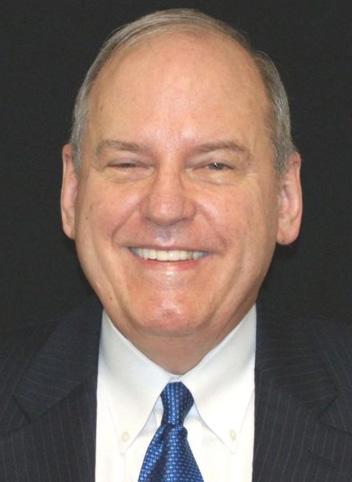
James Everitt Baine of El Dorado died July 3, 2024, at the age of 82.
Mr. Baine graduated from the University of Mississippi School of Law in 1968. In 1970, he joined the law department at Murphy Oil Corporation in El Dorado, Arkansas, where he became the General Attorney of the Company. In addition, he served as Assistant Secretary of the Murphy Oil Corporation and various subsidiaries.

Robert “Bob” Cortinez
Sr. of Little Rock died on Sept. 30, 2024, at the age of 86. Upon graduating high school, Bob joined the U.S. Army, where he was awarded the coveted 101st Airborne Ranger designation. Bob graduated from Northwestern State in Natchitoches, LA, then graduated from officer candidate school and retired from the Army as a full bird Colonel. Bob received a J.D. from the University of Arkansas School of Law, then practiced law in Little Rock for over 50 years.
Frances Shane Fendler died on August 22, 2024, at the age of 70. Frances received her law degree in 1982 from the UALR School of Law. She was editor-in-chief of the law school’s law review, graduated at the top of her class, and earned the highest score on the July 1982 Arkansas bar exam. She clerked for two years for the late and celebrated Hon. Richard S. Arnold. In 1986, Frances returned to Little Rock and joined the Bowen faculty.
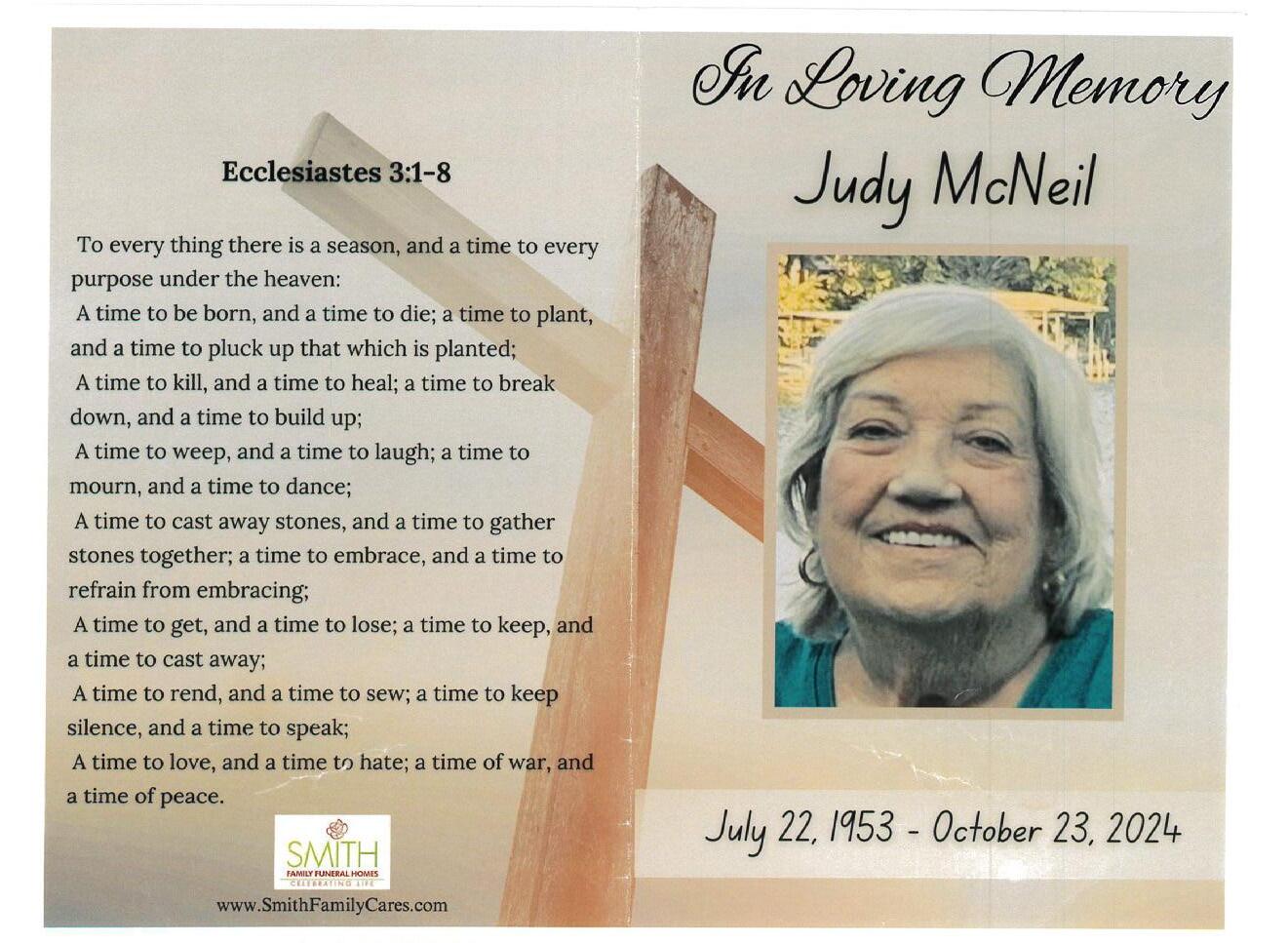
School in Fayetteville. After law school, he clerked for U.S. District Judge Gordon E. Young for two years before joining the law firm House, Holmes & Jewell in 1965, where he remained for 25 years before serving as General Counsel to the Little Rock Wastewater Utility.

Dr. Morriss Murphey
Henry of Fayetteville died on Sept. 8, 2024, at the age of 92. He graduated from Hendrix College and the University of Tennessee Medical School and then went on to become an early pioneer in laser surgery in Arkansas. Morriss served as a captain in the U.S. Air Force from 1959 to 1961. He also served as Washington County Coroner. He obtained his law degree in 1971 and served as State Representative and State Senator.

Lois Faith Gittelman Kline of Minersville, Pennsylvania, died on July 24, 2024, at the age of 90. Lois was an accomplished concert pianist in her youth and a well-respected securities lawyer even through her retirement.

R. David Lewis of Little Rock died on August 31, 2024, at the age of 80. David graduated from the University of Arkansas, Fayetteville, earning his Juris Doctor in 1968, before practicing law for nearly 50 years in Little Rock.
Judy Patrice McNeil of Hot Springs died October 23, 2024, at the age of 71. Judy graduated from Mount St. Mary in Little Rock, SAU (SSC) Magnolia and the UALR School of Law. She practiced law at Gill Ragon Owen until her death.
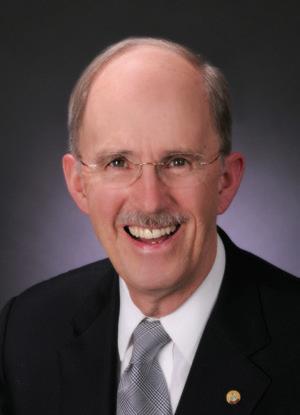
Frank Bates Sewall of Little Rock died on October 5, 2024, at the age of 79. He graduated from Dartmouth College in 1967 with a B.A. in Political Science and an M.B.A in 1968. Subsequently, Frank served in the U.S. Navy as an Ensign for four years as a Supply Officer on a Cruiser. After completing his tour of duty, Frank entered Emory Law School from which he received a J.D. in 1972. Frank worked at the Arkansas State Insurance Department for a time. Frank continued his work in insurance law during a multi-year tenure at National Old Line Insurance Company and later at Arkansas Blue Cross and Blue Shield where he was Chief Legal Counsel until his retirement in 2022. He served as president of the Arkansas Bar Foundation.

George Christopher “Chris” Walthall died August 10, 2024, at the age of 74. Chris attended State College of Arkansas (currently the University of Central Arkansas). He earned his law degree from the University of Arkansas Law School in 1974. Chris joined the U.S. Army and served in the Judge Advocate General’s Corps. Once he completed his military commitment, Chris moved back to Arkansas where he joined the law offices of Glover & Glover in Malvern. In 1979, Chris set out on his newest adventure as the sole proprietor of the Walthall Law Firm. Chris practiced law in Malvern for the rest of his life.
The information contained herein is provided from the members’ obituaries.

MeMorIals anD honorarIa
P.O. Box 7297, Little Rock, Arkansas 72217 www.arkansasbarfoundation.com
The Arkansas Bar Foundation acknowledges with grateful appreciation the receipt of the following memorial, honoraria and scholarship contributions received during the period August 1, 2024, through October 31, 2024.
In MeMory of robert CortInez
B. Jeffrey Pence
In MeMory of MIChele Glover
Sharon and Fred Ursery
Judge Billy Roy Wilson and Judge Cathi Compton
In MeMory of Don f. haMIlton
Hayden and Gordon S. Rather, Jr.
In MeMory of Dr. MorrIss henry
Shawn Johnson
In MeMory of Don hollInGsworth
John Gill
Donis B. Hamilton
Jeffrey and Lester McKinley
Judy and Glenn Vasser
Jack Morton Wilhelm
Tom D. Womack
In MeMory of JuDGe DavID n. laser
Tom D. Womack
In MeMory of r. DavID lewIs
B. Jeffrey Pence
In MeMory of ChrIstopher “ChrIs” walthall
Donald C. Pullen
sCholarshIp ContrIbutIon
e. Charles eIChenbauM sCholarshIp funD
J. R. and Peggy Jalenak
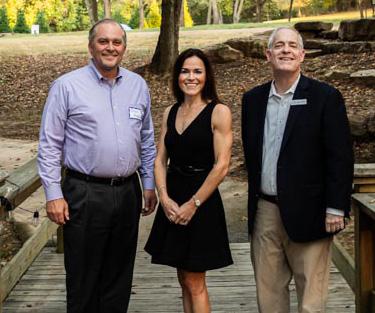
2024 Raising the Bar Committee: l to r: Brian Hogue, Vicki Vasser, and Jeb Joyce (not pictured: Gwen Rucker and Amelia Botteicher)
The Arkansas Bar Foundation hosted Raising the Bar, its seventh annual fundraiser, on the evening of October 4, 2024. It was held in the outdoor Pavilion and Creekside Patio at Sassafras Springs Vineyard and Winery in Springdale. Thanks to 43 generous sponsors listed below, and the support of other donors and guests, the 2024 Raising the Bar was a great success. Approximately 100 attorneys and guests were in attendance and enjoyed fellowship, delicious fare, and beverages. Net proceeds benefit the Arkansas Bar Foundation.

Attorney Disciplinary Summaries: Final actions from July 1, 2024 –September 30, 2024, by the Committee on Professional Conduct. Summaries prepared by the Office of Professional Conduct (OPC). Full text documents are available online at https://www.arcourts. gov/professional-conduct/opinions. [The “Model” Rules of Professional Conduct are for conduct prior to May 1, 2005. The “Arkansas” Rules are in effect from May 1, 2005.]
SUSPENSION:
PEARSON, MELYNDA GIBSON, of Texarkana, Arkansas, ABN: 95076, in Committee Case No. CPC-2019-029, on a complaint by Juan Moreno, by Findings & Order filed August 14, 2024, was SUSPENDED for SIX MONTHS, assessed costs of $150.00, and ordered to pay restitution of $2,500.00, for violations of AR Rules 1.1, 1.3, 1.4(a)(3), 1.4(a) (4), and 8.4. Pearson failed to provide competent representation to her client, which resulted in her client being held in contempt.
CAUTION:
CURTIS, DREW LANDON, of Little Rock, Arkansas, ABN: 2022137, in Committee Case No. CPC-2024-005, on a complaint by Shawn McLemore, by Findings and Order entered September 10, 2024, was CAUTIONED and assessed costs of $150.00, for violations of AR Rules 1.1, 1.3, 8.4(a), and 8.4(d). Curtis failed to provide competent and diligent representation, to the detriment of his client’s case. ■


At Public Notice Agency, we have one important mission: place all legal notices for firms like yours, saving you money and time while ensuring accuracy.
Our team uses innovative technology to place your notices in qualified newspapers. We confirm scheduled publication, manage accounting, and provide you with proofs along with one invoice.




